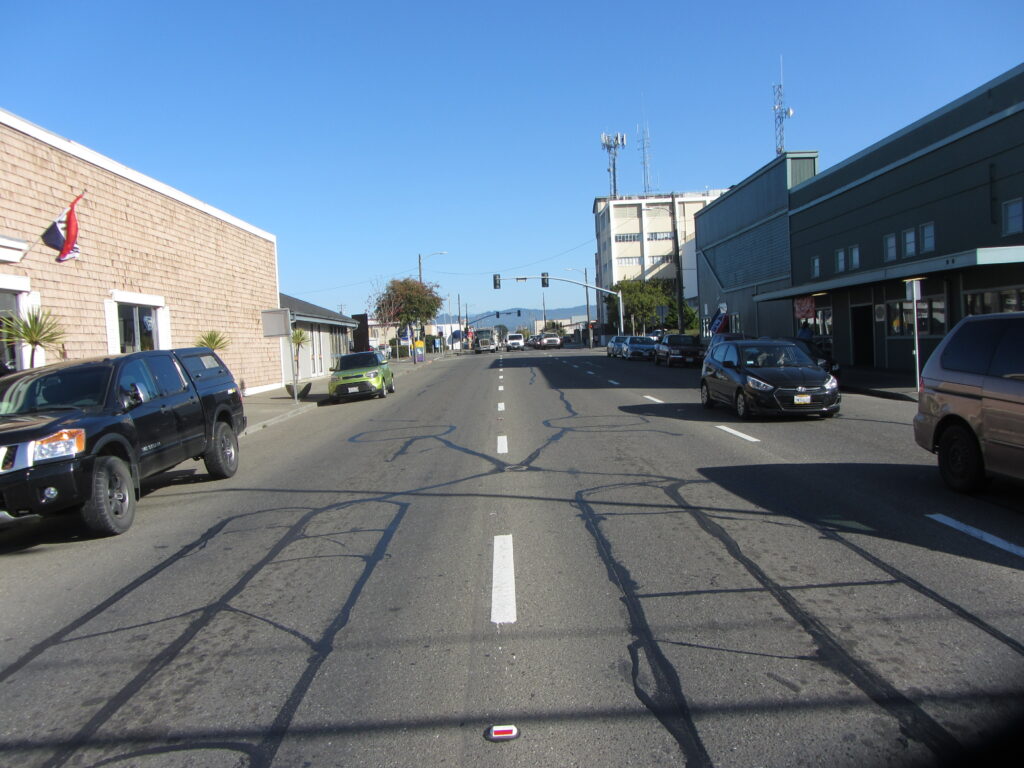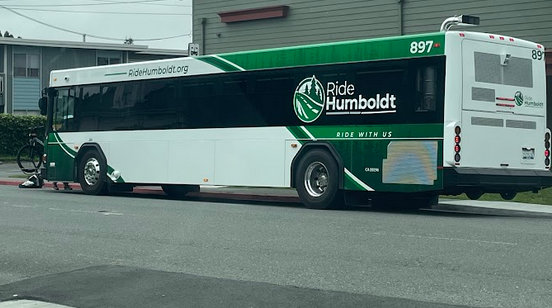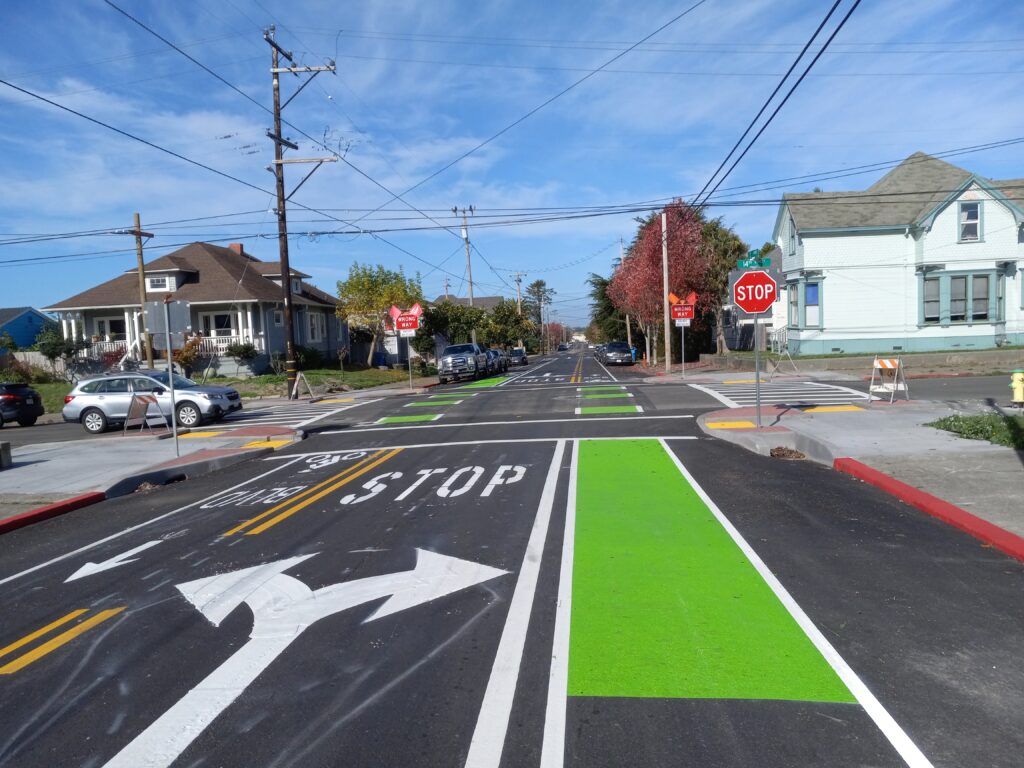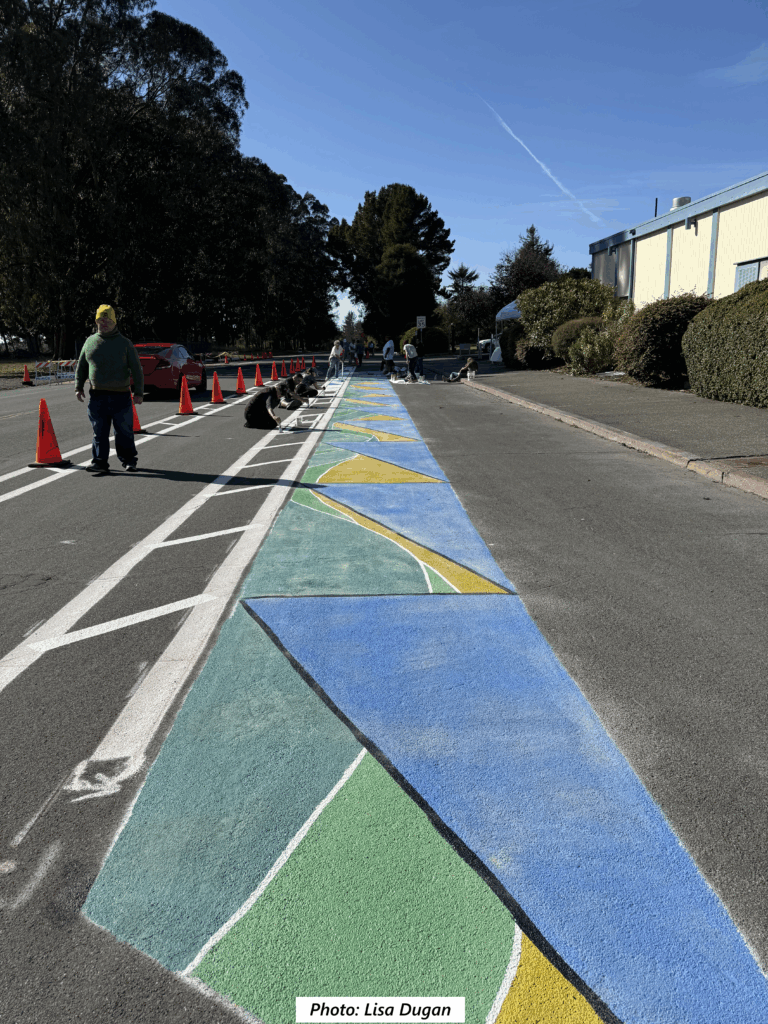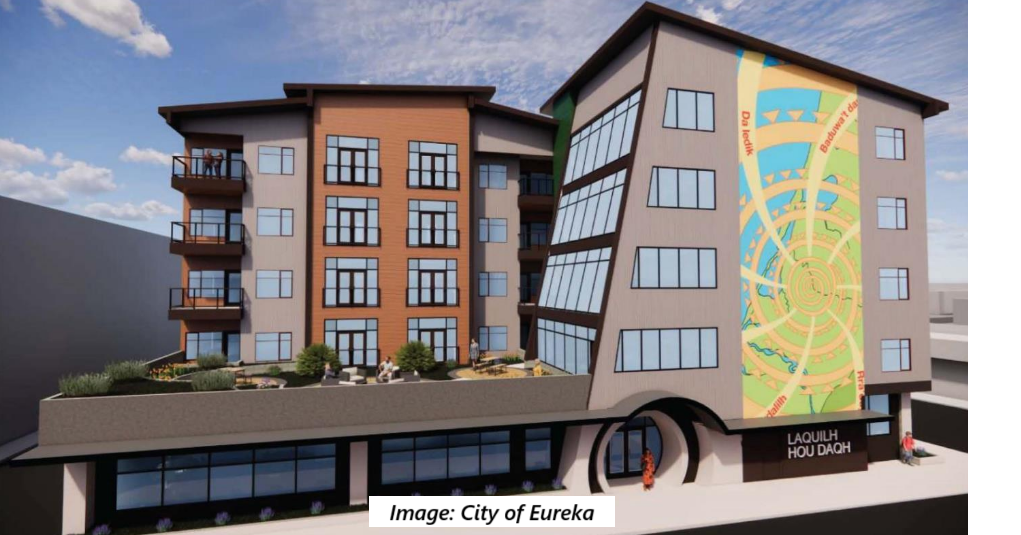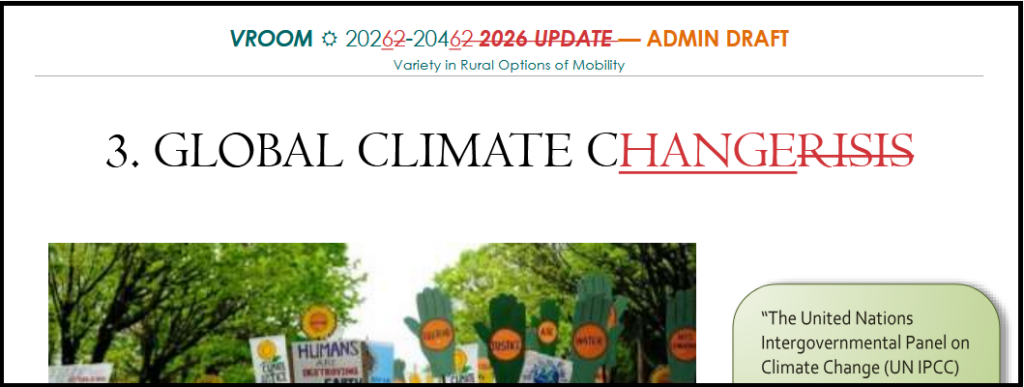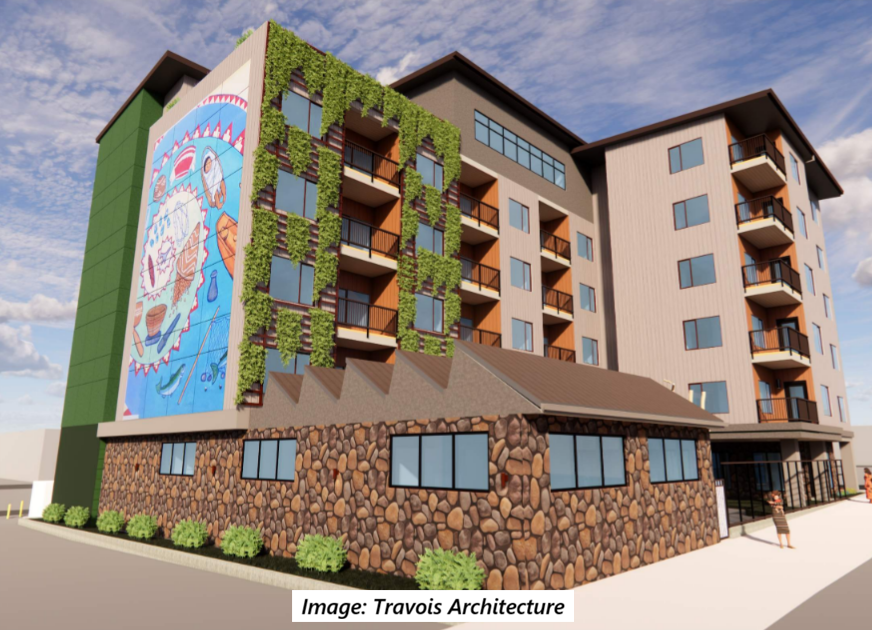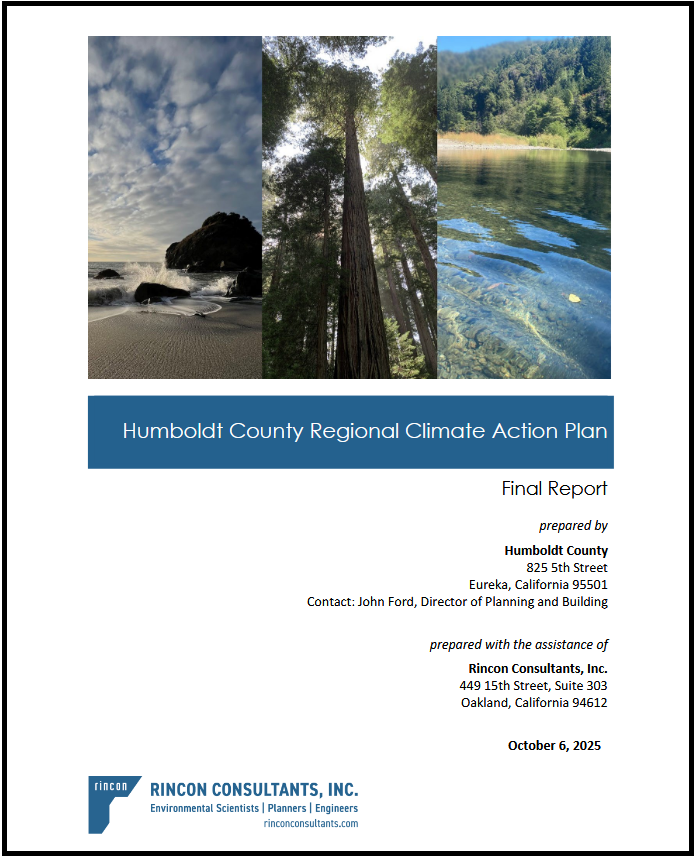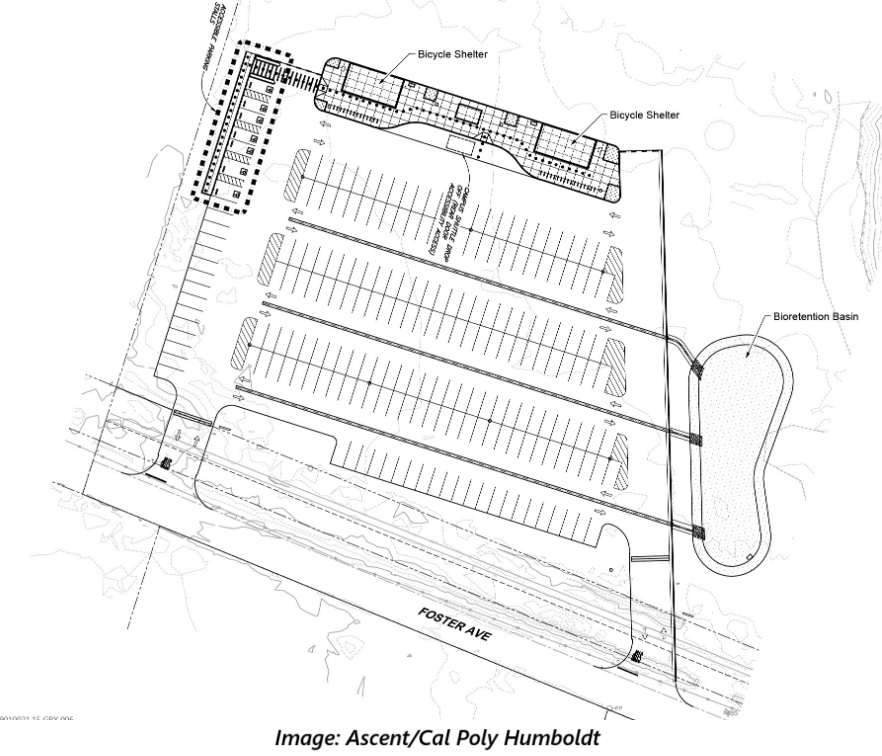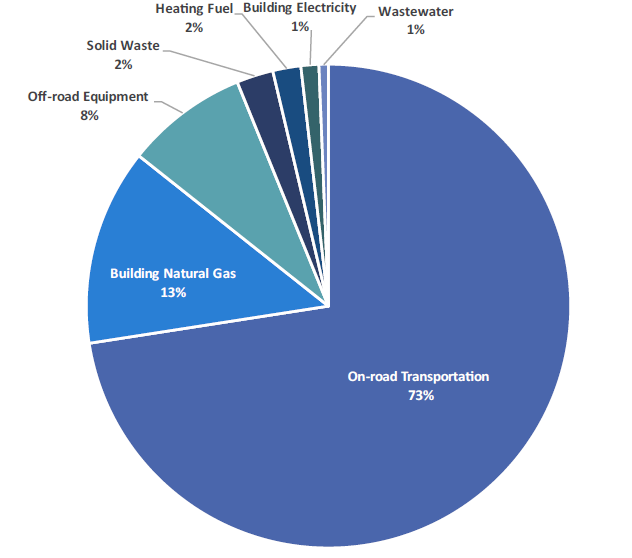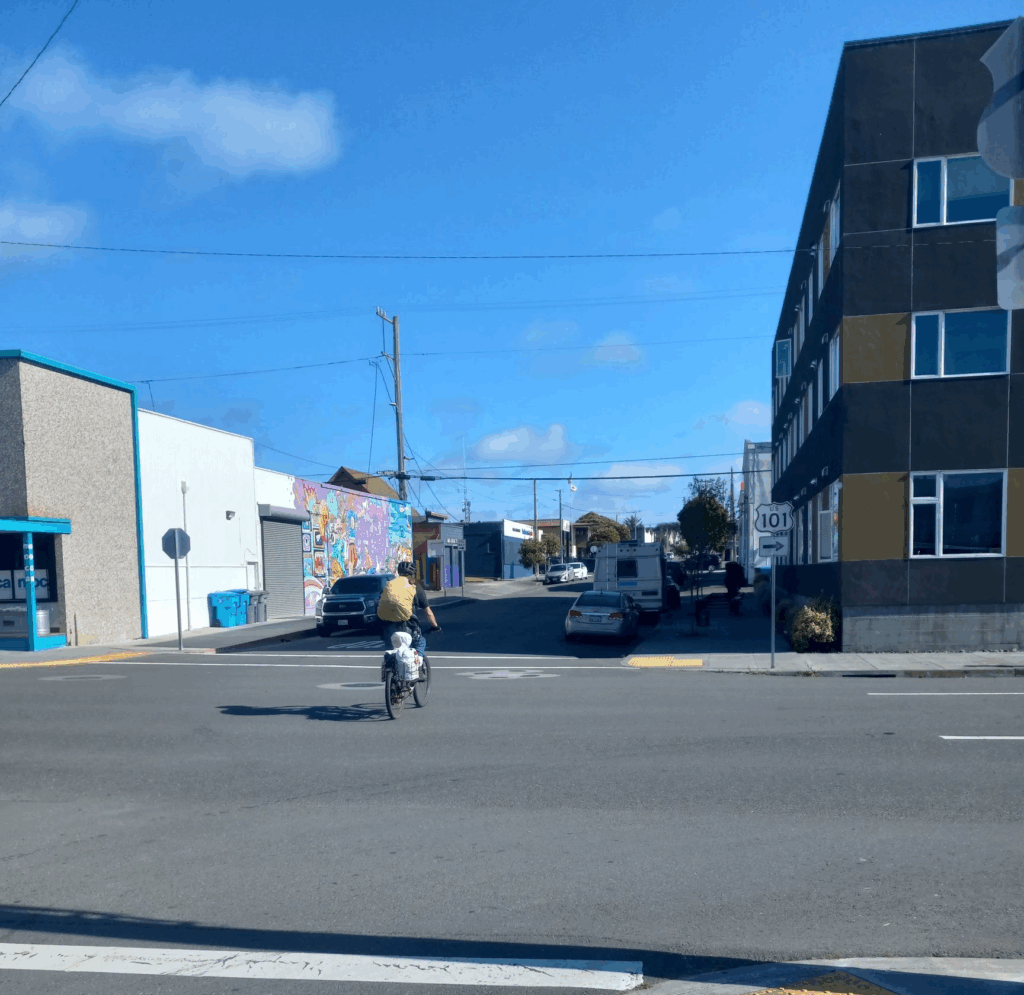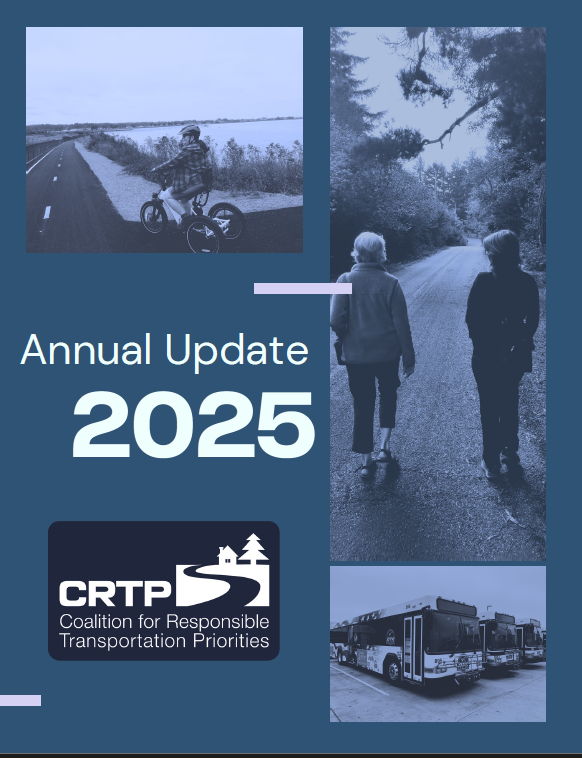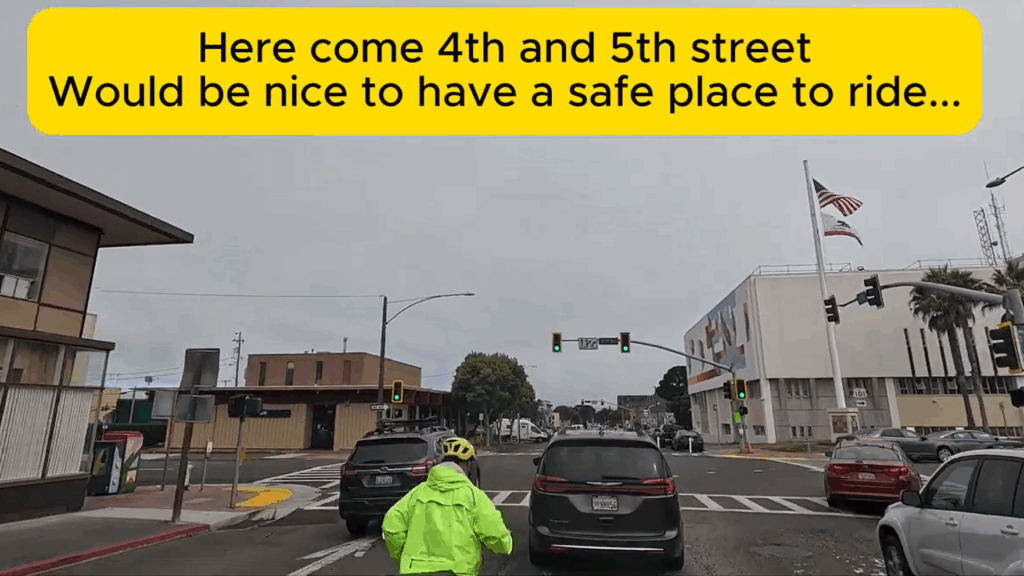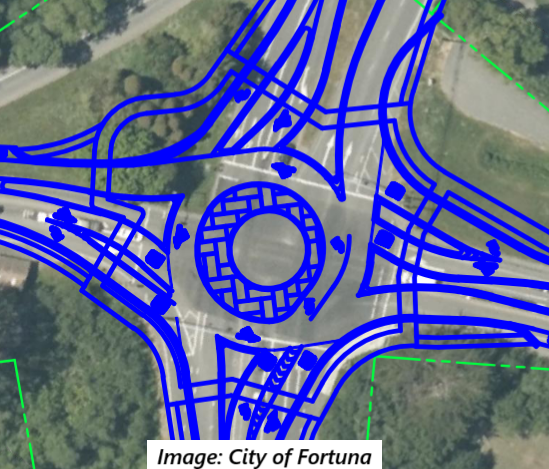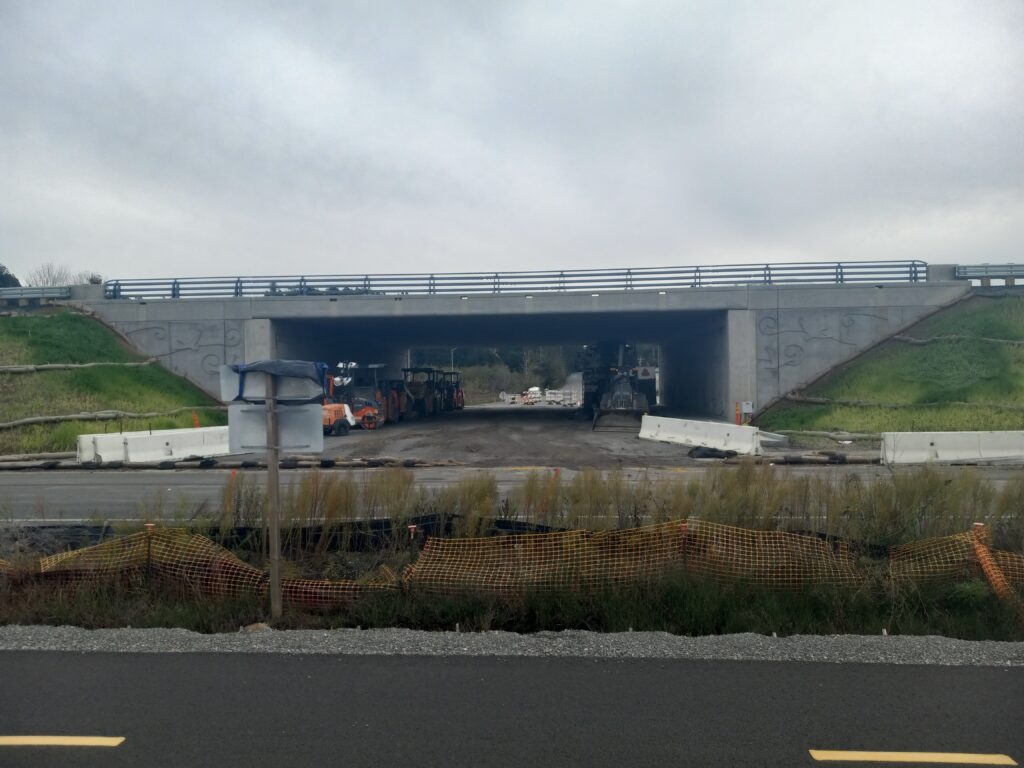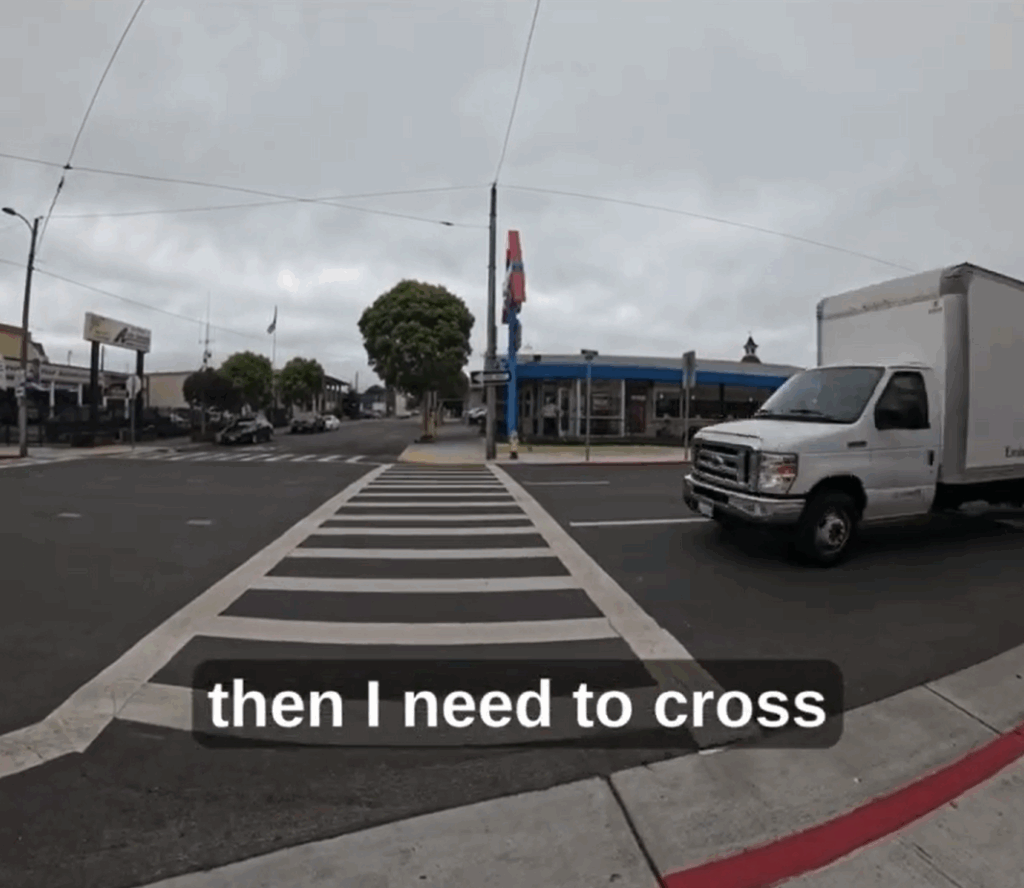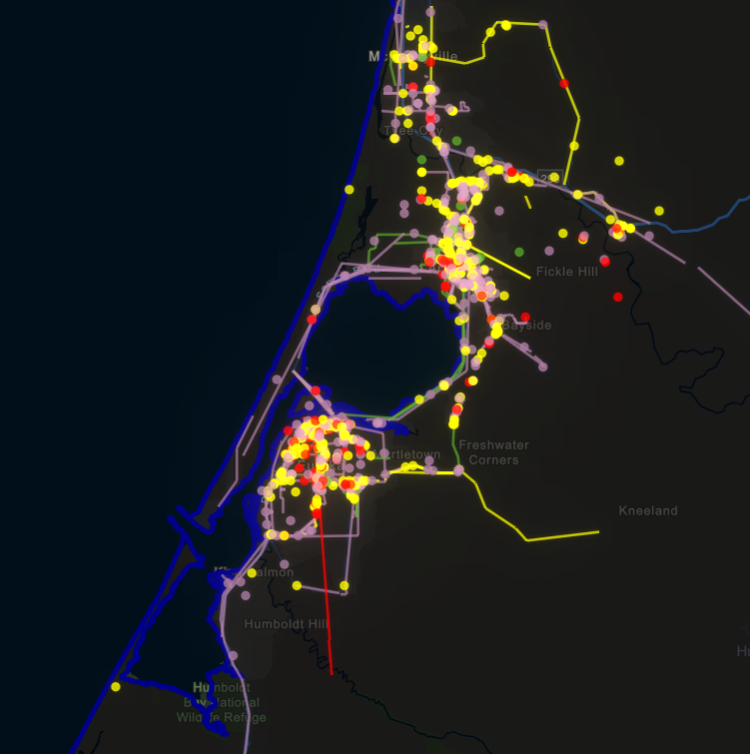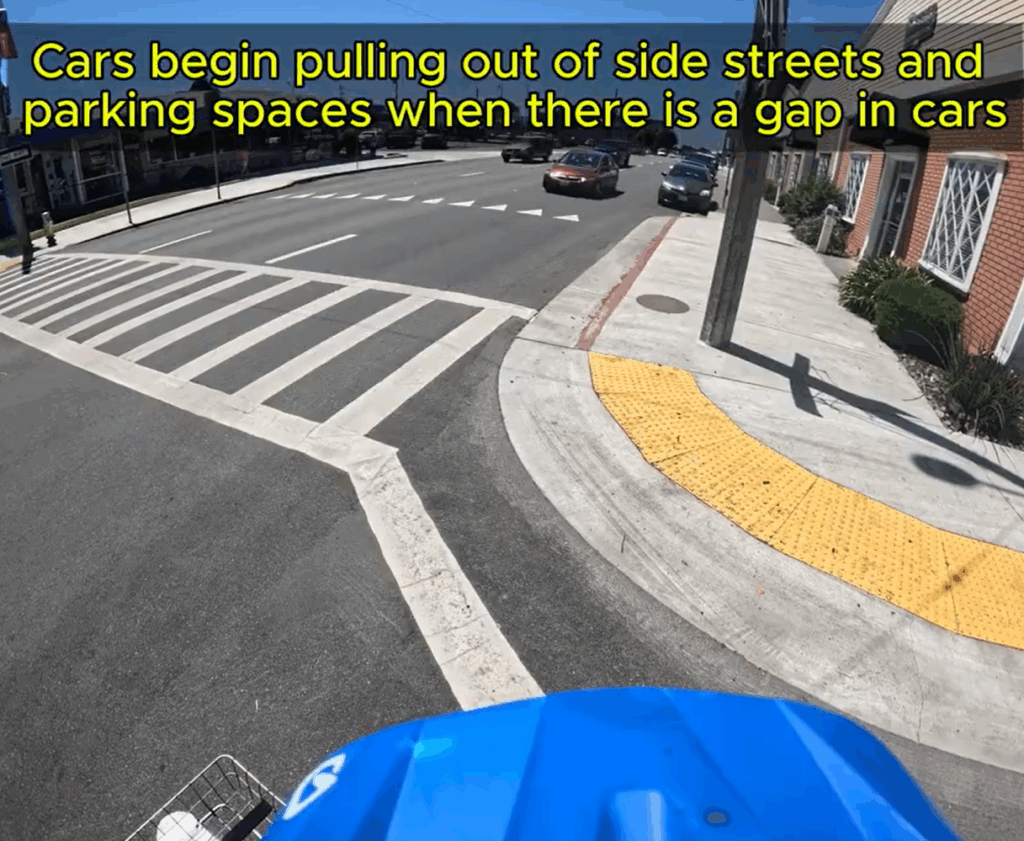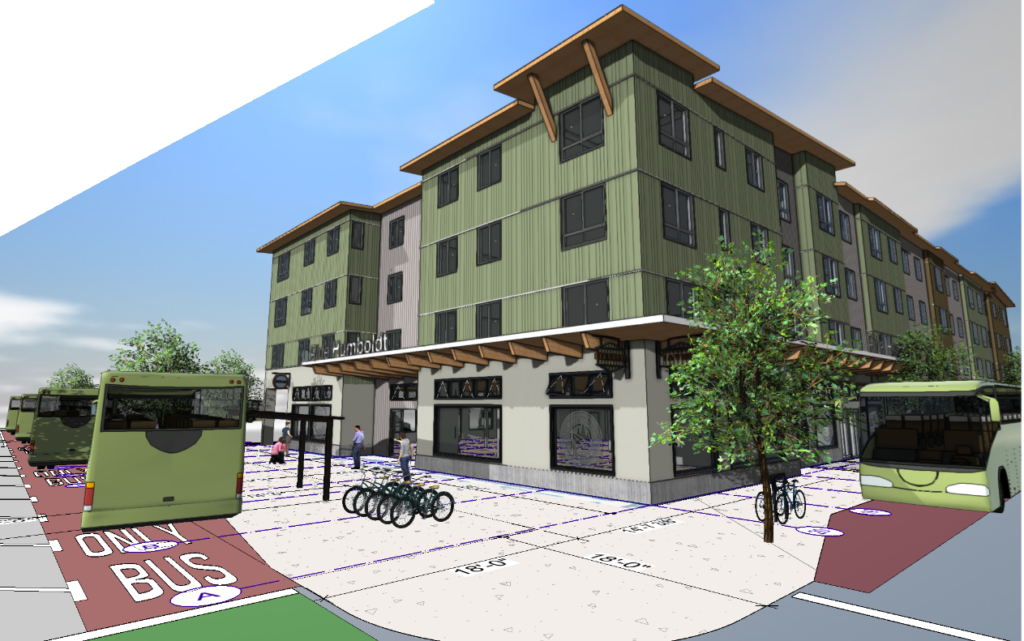The Collector is CRTP’s weekly transportation news roundup, published every Friday. We focus on North Coast news, but we also include relevant state, national and international transportation news – plus other items that we just find kind of interesting! You can submit items for consideration, or just enjoy the news collection!
Special Edition: Fixing US-101 in Eureka
The Collector: Special Edition
Editor’s Note: This week’s edition of The Collector is devoted to the safety problems that plague Eureka’s Broadway, 4th Street, and 5th Street. We’ll be back with a regular edition covering a variety of local transportation topics next week!
February 6, 2026
The Safety Crisis on US-101 in Eureka
There is a traffic safety crisis on Highway 101 in Eureka, including Broadway, 4th Street, and 5th Street. If you live, work, or travel in Eureka, you probably already know that.
Because of the way these streets are designed, vulnerable people are regularly killed there. In the last decade alone, at least 5 people have been killed and at least 35 people severely injured while walking or biking on 4th and 5th Streets. Pedestrians are severely injured or killed on these streets at 90 times the average rate for streets and roads in Humboldt County. Check out CRTP’s recent report “Dangerous Downtown Streets” for more information about the safety crisis on 4th & 5th Streets.
What’s Happening on Broadway?
Along with 4th and 5th Streets, Broadway is notorious for people being killed in car crashes – especially people walking and biking. Six years ago, CRTP began a coordinated campaign to pressure Caltrans to make major, near-term safety improvements on Broadway. In 2021, we submitted a Broadway safety petition to Caltrans with more than 500 signatures. As a result of that pressure, Caltrans quickly developed plans for three projects, collectively producing major safety upgrades to the entire Broadway corridor.
The first of those projects, the South Broadway Complete Streets Project, is currently under construction. It will add protected bike lanes, a new traffic signal, a new protected intersection for bikes, new sidewalks, street trees, medians, and more. The other two Broadway projects have not yet been funded by Caltrans, despite the ongoing safety crisis. Unbelievably, Caltrans headquarters apparently told local district staff that these projects didn’t even qualify as safety projects!
How Bad Is the Safety Crisis?
Over the last decade on 4th & 5th Streets, 5 people were killed and 35 seriously injured while walking, biking, or rolling. Over the same period, 1 motorist was killed and 31 seriously injured.
Over the last decade on Broadway, 11 people were killed and 20 seriously injured while walking, biking, or rolling. Over the same period, 3 motorists were killed and 29 seriously injured.
In all, in just ten years, US-101 in Eureka has claimed 20 lives and brutally affected many more. These streets are deadly. There’s no other way to put it. And we won’t accept this situation any longer.
Sign the Petition for Safer 4th & 5th Streets!
While plans for a Broadway safety overhaul have already been drawn up, and construction has started south of the Bayshore Mall, there are currently no plans for major safety improvements on 4th and 5th Streets.
It’s past time to make these dangerous downtown streets safe for everyone. If you haven’t signed the petition for safer 4th & 5th Streets yet, click here to sign now.
You don’t need to live in Eureka to sign the petition! Anyone who lives, works, or travels in Eureka can sign.
In addition to major safety upgrades on 4th and 5th Streets, our petition demands that Caltrans fully fund and build the rest of Broadway’s safety improvements too.
Help Us Gather Petition Signatures!
We want to show Caltrans that there is strong community support for major, near-term safety improvements to 4th and 5th Streets (and Broadway!). To do that, we need a lot of signatures on our petition. If you can volunteer to help us get more signatures on the petition, we’d love your help! Email kelsey@transportationpriorities.org for more information.
What’s It Like Walking and Biking on 4th and 5th Streets?
It’s easy to get lost in numbers and statistics. But these streets are part of everyday life for thousands of people in our region. And the impact that they have depends on who you are.
If you haven’t checked out CRTP’s series of point-of-view videos on 4th and 5th Street, we encourage you to take a look. We got a 6-year-old kid, an accessibility expert, and several other pedestrians and bicyclists to strap on cameras and document what it’s like for them navigating these streets under different conditions. These videos are eye-opening, even if you’re already familiar with 4th and 5th Streets from your own perspective.
We also encourage you to check out reports on Street Story, where dozens of local residents have documented their experiences on these streets. And then make your own report too!
Let’s Make These Streets Safe for Everyone!
Thousands of people live in the area around Broadway, 4th and 5th Streets, and many thousands more work, run errands, and travel there every day. Whether you’re a driver, a bus rider, a pedestrian, or a bicyclist, there’s no way to avoid these streets running through the center of our region’s largest community.
These streets should be safe for everyone. It’s as simple as that. People shouldn’t be afraid to bike to a local business on Broadway, 4th or 5th Street. Parents shouldn’t be afraid to walk across the street with their kids to get to the library or the Waterfront Trail. People with disabilities shouldn’t need to go half a mile out of their way just to cross the street in relative safety.
Let’s join together to tell Caltrans that this situation is unacceptable. Let’s demand the safe streets we deserve. If you haven’t signed yet, sign the petition today. (Anyone who lives, works, or travels in Eureka can sign.) And then make your impact even bigger by encouraging your family, friends, and neighbors to sign too!
The Collector is CRTP’s weekly transportation news roundup, published every Friday. We focus on North Coast news, but we also include relevant state, national and international transportation news – plus other items that we just find kind of interesting! To submit items for consideration, email colin@transportationpriorities.org.
Taking to the Streets to Protect Our Neighbors
The Collector
January 30, 2026
Taking to the Streets to Protect Our Neighbors
In Minneapolis and around the country, families are hiding in their homes, afraid to go out in public for fear of arrest, detention, or deportation. People who take to the streets in protest have been beaten, arrested, and killed.
CRTP believes in the right of all people to move around their communities safely and without fear. We stand in solidarity with everyone resisting the reign of terror being visited on communities in the name of immigration enforcement. And we encourage all of our members and supporters to take part in that resistance in any way they can.
We will be joining local demonstrations this weekend, and we hope that you will too. We also encourage you to enter Centro del Pueblo‘s hotline number into your phone, and call it if you see federal immigration agents locally. That number is 707-200-8091.
Sign the Petition for Safer 4th & 5th Streets!
Eureka’s Broadway, 4th and 5th Streets are dangerous. Anyone who lives, works, or travels in downtown Eureka knows that. CRTP’s recent report documents the dangers in detail.
It’s past time to make these dangerous downtown streets safe for everyone. If you haven’t signed the petition for safer 4th & 5th Streets yet, click here to sign now.
HCAOG Resists Putting Its Money Where Its Mouth Is
As we previously reported, following public pressure from CRTP, EPIC, and 350 Humboldt, the Humboldt County Association of Governments (HCAOG) Board of Directors recently showed support for addressing the problems we identified with an update of the county’s Regional Transportation Plan. Specifically, a majority of the Board supported restoring use of the phrase “climate crisis” throughout the plan, as well as restoring the existing policy that 80% of new housing should be in non-car-dependent areas, rather than pushing that target date out to 2030. Supervisor Steve Madrone, representing the county, also spoke forcefully in favor of a policy requiring HCAOG to prioritize funding projects that do the most to advance the plan’s goals of safety, climate action, and equity.
We are now seeing the proposed final draft of the plan for the first time. While HCAOG staff did restore the phrase “climate crisis” throughout the document, as well as the target for new non-car-dependent housing, they did not include any policy requiring that funded projects meaningfully advance climate, safety, or equity goals – despite Supervisor Madrone’s call for such a policy. This policy is fundamental to ensuring that the plan is more than just a pile of paper (or an online PDF), and CRTP will continue fighting for it as HCAOG considers the plan’s final adoption.
New Transit Options on the Way!
The Humboldt Transit Authority’s on-demand Flex system is expanding, with dozens of new stops and new dedicated vehicles. The system allows riders to hail a vehicle with an app. While it’s not a door-to-door service, it does serve numerous stops in the Humboldt Bay region, and can provide point-to-point rides as well as connections to regular fixed-route buses. CRTP supports this system as a way to provide service in areas without enough population density to support good fixed-route buses. If you have a trip that the regular bus routes don’t serve and you want to try out the Flex system, HTA is currently running a special promotion for two free rides with the code “FlexUp”. Everything you need to know to ride Flex can be found here.
In other transit news, the Arcata & Mad River Transit System recently expanded its later night options, and the Fortuna City Council appears likely to open Fortuna Transit service – which currently only serves seniors and people with disabilities – to the general public. This change could ensure the continuation of Fortuna Transit, which otherwise might end service, while allowing HTA to eliminate some low-ridership Redwood Transit stops in Fortuna and reduce travel times on its main regional route.
Love New Bike Lanes & Trails? Share Your Story!
From the long-awaited opening of the Humboldt Bay Trail to the completion of Eureka’s C Street Bike Boulevard to the quick-build bike lanes on Hiller Road in McKinleyville, we’ve seen a lot of progress toward better bike infrastructure in the last year. And progress continues with Eureka preparing to rehabilitate a portion of its much-loved Waterfront Trail.
But here at CRTP, we still regularly hear people grumble that they never see anyone riding on the new trails and bike lanes, and using that as an excuse for opposing future bike improvements. We know you’re using these new facilities, and we want to hear from you! Send your stories about what these new improvements mean to you to kelsey@transportationpriorities.org, and we’ll share them on CRTP’s social media – and maybe in The Collector too!
Hiller Road Quick-Build Project Changes
At this week’s McKinleyville Municipal Advisory Committee meeting, Humboldt County Public Works Director Tom Mattson provided some explanation for the county’s recent decision to remove the protective bollards on the new Hiller Road quick-build bike lanes, as well as the quick-build roundabout at Hiller Road and McKinleyville Avenue. Apparently the roundabout had not been designed in consultation with the fire district, which presented obvious problems. And the bollards were removed because debris was building up in the bike lane, and the county does not have a bike lane sweeper. CRTP has been encouraging local jurisdictions to buy a bike lane sweeper for several years, and we hope this is a wake-up call.
In better news, the traffic-calming narrower car lanes and painted bike lanes remain on Hiller Road, along with the community murals. And the county is now planning to add quick-build curb extensions, with more murals, to replace the roundabout in the spring.
Complete Streets Safety Assessments Available
The UC Berkeley Safe Transportation Research and Education Center (SafeTREC) – the organization that brought us Street Story! – is offering local governments free Complete Streets Safety Assessments. Could your community use an assessment? Encourage them to apply!
Traffic Deaths Outnumber Homicides 5-to-1
The Humboldt County Sheriff’s Office has reported that 3 people were killed in homicides last year (two of them by law enforcement officers), while 15 people were killed in car crashes, including 5 pedestrians. It’s another reminder that while homicides get much more attention in the media, drivers and their vehicles are the bigger threat to public safety by far.
News from Beyond the North Coast
Walkable Infill Homes Are More Affordable
A new report from UC Berkeley analyzes the total cost of housing – including associated transportation, utility, insurance, and tax costs – and found that homes built more densely in non-car-dependent areas are much more affordable than homes built in typical suburban sprawl patterns. A big part of the reason is the cost of owning and operating a vehicle.
Are Cars Causing the Loneliness Epidemic?
Cars separate their occupants from everyone around them, keeping people isolated even in public spaces. People in car-dependent communities live far apart and don’t see other people as much as people in walkable communities. The implications for loneliness and social isolation are significant.
Hauling Stuff Without a Car
Has anyone ever told you they can’t give up their car because they need to take their kids to school, or haul groceries or other heavy items around? Maybe you’ve had that thought yourself. If so, let us introduce you to the cargo e-bike.
The Collector is CRTP’s weekly transportation news roundup, published every Friday. We focus on North Coast news, but we also include relevant state, national and international transportation news – plus other items that we just find kind of interesting! To submit items for consideration, email colin@transportationpriorities.org.
More Progress on Walkable Housing in Eureka
The Collector
January 23, 2026
Sign the Petition for Safer 4th & 5th Streets!
There is a traffic safety crisis on Highway 101 in Eureka, including Broadway, 4th Street, and 5th Street. Because of the way these streets are designed, vulnerable people are regularly killed there. In the last decade alone, at least 5 people have been killed and at least 35 people severely injured while walking or biking on 4th and 5th Streets. Pedestrians are severely injured or killed on these streets at 90 times the average rate for streets and roads in Humboldt County.
It’s past time to make these dangerous downtown streets safe for everyone. If you haven’t signed the petition for safer 4th & 5th Streets yet, click here to sign now.
Our recent report “Dangerous Downtown Streets” describes the safety crisis on 4th and 5th Streets in detail, and recommends improvements to make things safer. Our point-of-view videos provide clear perspectives on what it’s like for people of all ages and abilities to walk and bike around 4th & 5th Streets. But if you’ve spent any time in downtown Eureka, you already know: these streets are dangerous.
Five years ago, our petition for a safer Broadway spurred Caltrans to plan a major safety overhaul of Broadway. Some of those improvements are now under construction, but the rest are still unfunded. So in addition to major safety upgrades on 4th and 5th Streets, our new petition demands that Caltrans fully fund and build the rest of Broadway’s safety improvements too.
If you want to help us get more signatures on the petition, we’re looking for volunteers! Email kelsey@transportationpriorities.org for more information.
More Progress on Walkable Housing in Eureka
Just a week after the Wiyot Tribe’s Gou’wik Hou Daqh “(Where the Families Are) family housing development was approved by the Eureka Design Review Committee, the Tribe broke ground on its Laqilh Hou Daqh (Where the Elders Are) housing project. As the Wiyot Tribe noted in its press release:
“Laqilh Hou Daqh is being developed on a parking lot, formerly owned by the City of Eureka, fulfilling Dishgamu’s values by developing infill housing on vacant or underused land within existing urban areas, integrating sustainability by reducing sprawl, cutting transportation emissions through walkability, using existing infrastructure efficiently, and incorporating green technologies, offering a key strategy for climate-friendly density and revitalizing communities. By using local contractors, the project provides local living wage jobs. This project leverages existing services, reduces habitat conversion, and increases affordable housing units with significantly lower overall carbon footprint compared to building in undeveloped areas. This development aligns with “smart growth” principles by focusing on compact, mixed-use development near transit.”
We couldn’t have said it better ourselves. Meanwhile, Linc Housing continues construction of its three downtown housing projects, the EaRTH Center transit and housing hub is expected to start construction this year, and the Sunset Heights affordable housing project (which includes a collaboration with CRTP) is lining up final funding. All in all, Eureka is seeing huge progress on much-needed walkable, transit-friendly housing. Even better: most of these projects come with bike, pedestrian, and transit upgrades too!
Caltrans Cutting Trees in Richardson Grove
CRTP has opposed Catrans’ highway expansion project through Richardson Grove since our founding in 2015. This week, Caltrans began cutting trees in the grove in preparation for what the agency says will be a spring start to construction. We join our allies at EPIC in condemning Caltrans for cutting trees with no public notice, while a lawsuit against the project is still pending in court, and for continuing to pursue this unnecessary, destructive, and costly project at all.
Two Positions for Local Sustainable Transportation Enthusiasts!
If you’re passionate about sustainable transportation and land use planning, there are two big opportunities right now to take on important local positions. If you’re looking for a full-time job, the Humboldt Transit Authority is hiring a project manager. If you’d like to volunteer for the community, the McKinleyville Municipal Advisory Committee is looking for applicants for a vacant seat. These are both great opportunities to help shape the future of our region!
Arcata to Expand Bikeshare System
This week, the Arcata City Council approved a plan to add two new bikeshare stations to its system. This latest expansion brings the total number of stations to 12, and will for the first time add e-bikes. CRTP is excited by the prospect of adding e-bikes, which help empower many local residents to replace car trips with a healthier, more environmentally friendly option.
Because bikeshare is most useful when coordinated with public transit, we are encouraging the city to locate new stations at well-used bus stops. We are also advocating for Eureka to add stations, including at the new EaRTH Center transit hub.
Almost a Tragedy
On Sunday, a driver in Old Town Eureka suddenly drove their car onto the sidewalk, narrowly missing several pedestrians and a horse. This could have been a tragedy, but instead it is a lesson. Old Town streets are narrow, and the city has built a lot of traffic calming features on 2nd Street where the crash occurred. That meant the driver was going slowly enough that pedestrians could “run out of the way,” as one witness put it, and avoid being hit. It’s a clear demonstration of why it’s so important to design streets for low traffic speeds, especially in areas with lots of people walking, biking, and rolling.
News from Beyond the North Coast
Dumb E-Bike Laws
New Jersey may soon become the first state in the country to require a license and insurance to ride an e-bike. This unworkable proposal would only serve to push more people back into cars – making our streets less safe. Unfortunately, New Jersey isn’t the only place where legislators are making proposals like this. What we need is not a crackdown on pedal-assist e-bikes that empower more people to get around by bike, but instead reforms to keep manufacturers from confusing legislators and the public by pretending that high-powered mini-motorcycles are actually e-bikes.
California’s Focus on Cars Makes It Harder for Many People to Access Resources
A new UCLA report finds that California’s transportation policy continues to prioritize cars at the cost of human lives, the climate, and equitable access to resources.
Most Americans Are Open to Living Without a Car
Despite the overwhelming force of car culture in the US, a new survey finds that 18% of Americans really want to live car-free, and another 40% are open to the idea. The results suggest that there is more support for policies that reduce car dependence than policymakers might have previously thought.
The Collector is CRTP’s weekly transportation news roundup, published every Friday. We focus on North Coast news, but we also include relevant state, national and international transportation news – plus other items that we just find kind of interesting! To submit items for consideration, email colin@transportationpriorities.org.
Regional Transportation Plan Fixes Are on the Way – Thanks to You!
The Collector
January 16, 2026
Our Voices Were Heard: Regional Transportation Plan Fixes Are on the Way
Following public pressure from CRTP, EPIC, and 350 Humboldt, as well as dozens of our members and supporters, the Humboldt County Association of Governments (HCAOG) Board of Directors showed support this week for addressing the problems we identified with an update of the county’s Regional Transportation Plan. Specifically, a majority of the Board supported restoring use of the phrase “climate crisis” throughout the plan, as well as restoring the existing policy that 80% of new housing should be in non-car-dependent areas, rather than pushing that target date out to 2030. Supervisor Steve Madrone, representing the county, also spoke forcefully in favor of a policy requiring HCAOG to prioritize funding projects that do the most to advance the RTP’s goals of safety, climate action, and equity.
While the HCAOG Board did not take a vote, based on their discussions, we expect these issues to be addressed when the final plan comes to them for adoption next month. Humboldt’s Regional Transportation Plan contains ambitious and science-based policies and targets – even more so than the recently approved Regional Climate Action Plan – and it’s imperative that we keep it that way.
Trinidad Rancheria Part of High-Tech Transportation Safety Pilot
The Trinidad Rancheria will be collaborating with the University of Utah to install high-tech sensors along Scenic Drive and in other parts of the Rancheria, thanks to a pair of federal grants awarded recently. The sensors are intended to detect seismic movements and landslides as well as traffic movements, use AI to predict road hazards, and produce real-time warnings. CRTP will be watching to see if this approach can produce real safety gains, although the energy and expense involved leads us to question how realistic it is for these technologies to be deployed at scale.
Wiyot Family Housing Development Moves Forward, and Other News from Eureka
Eureka’s Design Review Committee this week approved the Gou’wik Hou Daqh “Where the Families Are” Wiyot Family Housing Development, to be built on the site of the current city parking lot at 5th and D Streets. CRTP has been working to support the conversion of underused downtown parking lots into walkable housing for many years, and we are excited to see this project move another step closer to construction.
In other news from Eureka, the City Council is slated to adopt new Strategic Visioning Goals that include, among many other things: doubling down on transportation safety efforts, developing a new transit hub in Henderson Center, creating “pedestrian-centric parkways,” seeking funding for pedestrian lighting along Broadway, and implementing a better parking management program in core areas.
Speaking of parking management, city staff told Transportation Safety Commission members this week that the city is proceeding with its paid parking program for downtown lots and preparing to expand it to on-street parking. Staff also outlined plans to reprogram many of the city’s traffic signals to reduce conflicts and improve safety.
But the news from Eureka is not all good. Unfortunately, the City Council recently decided to appeal its allocation of affordable housing through the state-mandated Regional Housing Needs Assessment. Specifically, the city objects to the use of vehicle miles traveled as a major factor in allocating lower-income homes throughout the county, which results in Eureka – as the county’s most walkable community – having to plan for more affordable housing.
CRTP believes that all communities need affordable housing, but concentrating such housing in car-dependent areas rather than walkable communities like Eureka penalizes people who can’t afford to own or operate a vehicle. Moreover, when we pushed for more housing at all income levels to be built in non-car-dependent areas, the city objected to that, too – a history which undermines the moral case they are trying to make against “concentrating poverty” in Eureka.
Provide Input on Del Norte Active Transportation Plan
Del Norte County is developing a much-needed active transportation plan, and there are currently two opportunities to provide input: You can take a survey about your experiences and priorities, and you can provide location-specific comments on a map. We encourage anyone who lives, works, or visits Del Norte to use both tools to provide input. You can find out more about the plan here. Let’s encourage Del Norte to start prioritizing the safety and mobility of people walking, biking, and rolling!
We Can’t Enforce Our Way to Safety
The Eureka Police Department has taken every opportunity lately to remind the public that they are conducting more – way more – traffic stops than they used to. But serious crashes just keep on happening. It is tempting to believe that better enforcement of traffic laws would solve our safety problems. And it’s true that a small number of people drive especially dangerously as a matter of habit, which is why we support efforts to revoke driving privileges from the most egregious violators. But the research consistently shows that enforcement can’t produce sustained, community-wide reductions in serious crashes. When you add in the fact that traffic stops are often used as a pretext for other investigations rather than targeting genuinely unsafe behavior, and the fact that people of color are almost always targeted disproportionately, you can see why CRTP does not support police enforcement as a major strategy for improving safety.
Barriers to Better Bus Service
A recent article on the Lost Coast Outpost explored the question of why Humboldt County doesn’t have better bus service. The answers will be familiar to regular readers of The Collector. Low-density, car-dependent development makes effective transit service very hard to provide, and the Humboldt Transit Authority has a very small budget to work with.
The article singled out the proposed “Roger’s Garage” affordable housing project in Bayside, noting that there is currently no bus service to Bayside due to the low-density development pattern, but it’s possible there could be service in the future if the project generates enough local demand. Given the current lack of transit service, CRTP’s focus for the Roger’s Garage project is on accelerating progress toward addressing the dangerous conditions for bicyclists and pedestrians at the Samoa Boulevard/US-101 interchange, which is currently a major barrier for people walking and biking from Bayside to the rest of Arcata.
Unmentioned in the Outpost article is the need for improvement of the Eureka and Arcata transit systems, which serve the densest parts of the county but run complicated, infrequent, and inconvenient loop routes. If you have ideas about improving transit in Eureka specifically, click here to take a survey being conducted by a local student about just that topic.
News from Beyond the North Coast
Let’s Talk About the Cost of Cars
With politicians focusing much of their energy lately on the issue of affordability, cars are a major blind spot. While the cost of gas gets plenty of air time, the other costs of car ownership – which collectively are much greater than the cost of fuel – are largely ignored.
This Is Your Brain on Cars
“Car brain” – also called windshield bias or, more academically, motonormativity – is a real thing. And it’s causing huge problems.
Newsom’s Budget Again Fails to Invest in Active Transportation
Governor Newsom’s January budget proposal leaves investment in pedestrian and bike infrastructure at historically low levels, despite massive demand from local communities. Meanwhile, new research confirms that building this kind of infrastructure leads directly to more people walking and biking, which the state needs in order to meet its climate targets – not to mention improve public health and stimulate local economies.
Trump’s EPA Doesn’t Value Human Life
The US EPA has proposed new rules which fail to assign any dollar value to human lives saved by pollution regulations, while assigning large values to the supposed costs of such regulations to corporations. The predictable result will be that almost any proposed regulation will appear to have huge costs and no benefits, and will therefore not be adopted. If this approach is applied to new vehicle regulations, the implications for transportation will be significant.
The Collector is CRTP’s weekly transportation news roundup, published every Friday. We focus on North Coast news, but we also include relevant state, national and international transportation news – plus other items that we just find kind of interesting! To submit items for consideration, email colin@transportationpriorities.org.
Humboldt Regional Climate Action Plan Adopted!
The Collector
December 19, 2025
Editor’s Note: The Collector will be on a winter break for the next few weeks. We’ll be back in the New Year!
Humboldt Regional Climate Action Plan Adopted!
On Tuesday, the Humboldt County Board of Supervisors officially adopted the Regional Climate Action Plan after nearly eight years under development. We appreciate that the supervisors made some changes to address our concerns about the plan’s definition of infill development (although we have yet to see the text of those changes). We also saw some progress addressing our concerns about greenhouse gas thresholds for new projects, with the supervisors adopting thresholds that are slightly more reasonable than what was recommended by the Planning Commission, but still not as ambitious as they should be.
In fact, “some progress, but not as ambitious as it should be” would be a reasonable way to sum up the whole Regional Climate Action Plan. The plan commits to much-needed new programs and reforms in transportation, land use, energy, and other areas. This marks the first time that some local agencies – notably the County of Humboldt itself – have made such meaningful commitments. However, it was supposed to be a ten-year plan starting in 2020, and the long delays mean the region now has only 4 years (until 2030) to follow through. And many of the plan’s goals are not very ambitious – for example, to increase walking and biking in urban areas from the current 9% of trips up to just 12%. So the new plan developed in 2030 will have to include much more aggressive measures in order to reach the state’s target of carbon neutrality by 2045.
It’s also worth noting that the plan is intended to be implemented not just by the county, but also by all seven local cities and several other agencies. All of these partners must now adopt the plan. The real work won’t start until that happens, after which a Regional Climate Committee will be formed and staff hired to work on it. CRTP will be monitoring the situation closely.
Parking, Parking, Parking
Parking was the theme of the Arcata City Council meeting this week. The Council established a parking permit system on Eye Street to address concerns about student parking spillover from the new Hinarr Hu Moulik dorms. This simple action provides a good illustration of how parking problems do not need to be addressed with more parking – they can be much more effectively addressed through good management.
The bulk of conversation at the meeting, however, was focused on Cal Poly Humboldt’s plan to build a massive new parking lot on Foster Avenue in the Arcata Bottoms. In contrast to the parking permit system, this plan represents the worst way to respond to perceived parking shortages: by paving over yet more land in a vain effort to meet parking “demand.” In fact, the university revealed Wednesday that they eventually plan to build a mind-boggling 1,000 parking spaces on the site.
The university has many options for better managing its parking problems – some of which are called for in its own climate action plan – and an expensive parking study the university commissioned a few years ago explicitly advised against building new parking. But the administration has so far ignored its own plans and expert advice, refusing to implement new parking management strategies and instead opting to pursue costly, destructive, and unnecessary new parking construction.
We should acknowledge that a Cal Poly representative also announced on Wednesday a needed trail connection to fill the gap between segments of Foster Avenue. Unfortunately, the benefits of this small improvement for bicyclists and pedestrians will be completely overshadowed by the impacts of the massive expanses of asphalt to be built just a few steps away.
Comment Period Still Open for Regional Transportation Plan
Humboldt’s Regional Transportation Plan contains more ambitious and science-based policies and targets than the Regional Climate Action Plan. But a new version being circulated for public comment backs away from previous commitments to urgently needed climate progress.
From removing the phrase “climate crisis” to delaying commitments to build climate-friendly infill housing, purchase zero-emission vehicles, and develop EV charging stations, the new plan would be a step backward for the region. Most concerning, the new plan would remove any commitment to funding projects that are actually consistent with the plan’s own goals for climate action and transportation safety.
The public comment period is open until December 29th. If you haven’t commented yet, we encourage you to take the official survey on the plan, and then to email Humboldt County Association of Governments (HCAOG) Board members and tell them to increase their commitment to climate action rather than abandoning their ambitions. You can find Board members’ emails here.
Here are some specific things you could say:
- Restore the use of the phrase “climate crisis” throughout the Regional Transportation Plan. Language matters, especially when it comes to important plans and policies.
- Don’t reverse climate progress. Keep existing targets for climate action, including climate-friendly infill housing. We need climate action now, not five years from now.
- Ensure that future funding decisions prioritize HCAOG’s own climate and safety goals. A plan is nothing more than words on paper if it doesn’t influence future decisions!
News from Beyond the North Coast
Rural Transit Would Be Hit Hard by Trump Cuts
The Trump administration’s proposal to cut almost all federal funding for public transit would hit rural areas like the North Coast particularly hard. Small rural transit agencies tend to rely much more heavily on federal funding than agencies in bigger metro areas.
Trump Administration Wants Dirtier Buses
There’s really no other way to say it. Faced with administering a congressionally mandated grant program to fund low-emission and zero-emission buses, the administration provided almost no funding for zero-emission buses. Instead, they poured money into the dirtiest vehicles that could fit the definition of “low-emission.”
The Collector is CRTP’s weekly transportation news roundup, published every Friday. We focus on North Coast news, but we also include relevant state, national and international transportation news – plus other items that we just find kind of interesting! To submit items for consideration, email colin@transportationpriorities.org.
There’s Still Time to Weigh in on Regional Climate and Transportation Plans
The Collector
December 12, 2025
There’s Still Time to Tell Humboldt County Supervisors to Adopt a Robust Climate Action Plan
The Humboldt County Board of Supervisors is slated to adopt the Regional Climate Action Plan next Tuesday, and you can still weigh in! CRTP is joining our environmental allies in asking the supervisors to approve the plan, after making a few key changes. Here are our specific requests:
- Adopt greenhouse gas thresholds at the original levels recommended by the consultant, and reject the Planning Commission’s attempt to weaken this key standard for projects that aren’t compliant with the plan. (Check out EPIC’s great explanation of this issue here.)
- Ensure that only low-emission infill development projects will be considered compliant with the plan, so that high-emission rural developments aren’t exempted from analyzing and mitigating their climate impacts.
- Adopt and implement the plan without delay and without weakening it.
You can find a lot more detail in the letter CRTP and EPIC submitted to the Supervisors. We encourage CRTP’s supporters to email the Supervisors (you can find their emails here), and attend the Board of Supervisors meeting next Tuesday (December 16th), starting at 9:00 am in the Board of Supervisors Chamber, Humboldt County Courthouse, 825 Fifth Street, Eureka.
Take Action: Transportation Is at the Heart of the Climate Crisis
The Regional Climate Action Plan isn’t the only regional plan currently under consideration that will have a big effect on climate pollution. Transportation accounts for nearly three-quarters of local greenhouse gas emissions, which means Humboldt County’s Regional Transportation Plan is also crucial for the future of climate action in our region.
This plan is updated every four years by the Humboldt County Association of Governments (HCAOG), which is governed by a Board of representatives from the county and all seven of its incorporated cities. Unfortunately, the latest draft of the plan backs away from previous commitments to urgently needed climate progress.
Shockingly, HCAOG is actually proposing to remove all uses of the phrase “climate crisis” from the draft plan, suggesting a troubling lack of understanding of the seriousness of climate change and the urgency of action. And it’s not just the language that has been changed. The new draft also kicks the can down the road by delaying commitments to build climate-friendly infill housing, purchase zero-emission vehicles, and develop EV charging stations.
Even worse, HCAOG is proposing to remove from the plan any commitment to ensuring that the projects they fund are actually consistent with their own goals for climate action and transportation safety.
With the federal government aggressively undermining climate action and trying to ensure the crisis only gets worse, local communities need to step up now more than ever. We can’t let our county and our cities backslide on climate at this critical moment in history.
We encourage everyone to take HCAOG’s official survey on the plan, and then to email HCAOG Board members and tell them to increase their commitment to climate action rather than abandoning their ambitions. You can find Board members’ emails here.
Here are some specific things you could say:
- Restore the use of the phrase “climate crisis” throughout the Regional Transportation Plan. Language matters, especially when it comes to important plans and policies.
- Don’t reverse climate progress. Keep existing targets for climate action, including climate-friendly infill housing. We need climate action now, not five years from now.
- Ensure that future funding decisions prioritize HCAOG’s own climate and safety goals. A plan is nothing more than words on paper if it doesn’t influence future decisions!
If you want to dive deeper, you can review the draft Regional Transportation Plan, read the official comments submitted by CRTP and our environmental allies, or read recent local media coverage of the issue. Comments are due by December 29th.
Housing Wins and Warning Signs
Walkable, transit-friendly, affordable housing in Eureka got two big boosts this week. First, the Sunset Heights affordable housing project, on the bluff above Broadway between Harris and Henderson Streets, secured a $21.7 million state grant. The money will not only allow the construction of 43 affordable homes near jobs and services, it will also pay for improved transit service as well as bike and pedestrian safety upgrades to some of the neighborhood’s most dangerous streets. CRTP is proud to have helped facilitate this grant application and excited to announce that a small portion of the funding will help us develop a new program at CRTP.
In breaking news today, we have also learned that the Humboldt Transit Authority and Danco have officially received the final funding needed for construction of the Eureka Regional Transportation and Housing Center (EaRTH Center), the long-awaited downtown transit hub with 45 affordable homes built right on top!
While we celebrate these wins for infill housing, we are also tracking warning signs that the county may be planning for more car-dependent, climate-wrecking sprawl. At their meeting this Tuesday, Humboldt County supervisors approved a grant application that, among other things, would fund studies of “improvements necessary to support potential subdivision and development along the Walnut Drive corridor between Cutten and Ridgewood.” Development in this area would have very little potential for walkability, bikeability, or high-quality transit – in other words, it would be sprawl. We will be advocating strongly for the county to support new housing in more sensible locations like Myrtletown and McKinleyville.
Trails! Trails! Trails!
Next Tuesday, the Great Redwood Trail Agency will be holding a virtual public meeting about its Master Plan for the future development of the trail from San Francisco Bay all the way around Humboldt Bay to Fairhaven. You can register for the meeting here, and submit questions in advance using this form.
Meanwhile, the Humboldt County Board of Supervisors took another step this week toward maintaining a crucial piece of existing trail infrastructure. The Hammond Trail bridge over Baduwa’t (Mad River) provides a safe connection between McKinleyville and Arcata for bicyclists and pedestrians, but is old and considered seismically vulnerable. Funding to replace it was secured by Congressman Jared Huffman two years ago, and on Tuesday the supervisors hired a consultant to develop engineering and environmental plans for the project.
Are We Really Still Doing the Big Box Thing?
According to media reports this week, Wal-Mart is in the process of buying the old K-Mart property on Broadway in Eureka. The property owner had previously agreed to sell the property to the county for a new permitting center, but apparently backed out after receiving an offer from Wal-Mart.
Wal-Mart stores are the epitome of car-dependent corporate development, with infamously large parking lots and predatory business practices. There’s a reason “big box” stores are not allowed in Arcata or the future McKinleyville Town Center. Why is Eureka still allowing, and even encouraging, this kind of development?
News from Beyond the North Coast
California’s Legislators Fail to Prioritize Transportation Safety
A new CalMatters investigation shows that, when presented with the fact that 40,000 people have died on California’s roads in the last decade and the number keeps rising, state legislators completely ignored this accelerating epidemic and decided instead to discuss issues like homeless encampments on state highways. It’s a stunning example of the lack of political will that is undermining efforts to eliminate traffic deaths. We know how to stop the carnage. The solutions – from better road design to intelligent speed assistance in vehicles – are well documented, and where governments invest in them, they work. But we will never make progress if our leaders keep ignoring the problem.
Statewide Task Force Recommends Transit Reforms
The California Transit Transformation Task Force has been meeting for the last two years. The group, created by a state law in 2023, was charged with charting a path forward to ensure robust and effective transit systems across the state, and determining how to avoid the fiscal crises facing many big systems. The task force’s official report has now been published. Among other things, it calls for new funding sources for transit and freeing transit operators from onerous state restrictions. Some of the recommendations can be implemented by transit agencies and local governments, but most will require the state legislature to take action.
About That Traffic Study…
When changes to local road or street designs are proposed, it’s usually not long before someone calls for a “traffic study.” Not unreasonably, people feel that we should know what will happen to car traffic after a project is built, and a study sounds like an official and scientific way to find out. But it turns out that most of the models used to conduct these studies are deeply flawed and fail to account for some of the most basic principles in transportation planning.
If You Build It, They Will Come
We’ve long known that building more highway lanes doesn’t alleviate congestion in the long term. Instead, it results in more people driving and filling up the lanes again, so congestion ends up at about the same level it was before. Recent research confirms that this phenomenon – called induced travel – happens with even small “congestion-reducing” projects, like adding a turn lane at an intersection. And it also applies to people walking and biking. Build more bike lanes, sidewalks, and trails, and people will walk, bike and roll more!
The Collector is CRTP’s weekly transportation news roundup, published every Friday. We focus on North Coast news, but we also include relevant state, national and international transportation news – plus other items that we just find kind of interesting! To submit items for consideration, email colin@transportationpriorities.org.
Tell Humboldt County Supervisors to Adopt a Robust Climate Action Plan
The Collector
December 5, 2025
Tell Humboldt County Supervisors to Adopt a Robust Climate Action Plan
Nearly 8 years after Humboldt County began work on a Regional Climate Action Plan – years in which global climate pollution kept rising and the impacts of climate change became more and more severe – the Board of Supervisors is finally poised to adopt it. Through all these years, CRTP has been advocating for a robust plan that meets the urgency of the climate threat and tackles the region’s biggest source of climate pollution: transportation.
Almost three-quarters of the climate pollution covered by the plan comes from transportation. That means that upgrading our local infrastructure and services, and changing our land use rules, to make low-carbon options like walking, biking, rolling, and riding the bus safer, easier, and more appealing are keys to the plan’s success.
CRTP has been advocating for almost 8 years to get a plan adopted that is robust and ambitious enough to meet the urgent challenge of climate action. The current plan is far from perfect, but we will be relieved to see it adopted. After adoption, a regional climate action committee will be set up and new staff will be hired, setting the stage for more focused and ambitious climate action than we have seen in the past.
The supervisors are scheduled to vote on the plan on December 16th, and written comments are due next Thursday (December 11th). We are joining our environmental allies in asking the supervisors to approve the Regional Climate Action Plan, after making a few key changes. Here are our specific requests:
- Adopt greenhouse gas thresholds at the original levels recommended by the consultant, and reject the Planning Commission’s attempt to weaken this key standard for projects that aren’t compliant with the plan. (Check out EPIC’s great explanation of this issue here.)
- Ensure that only low-emission infill development projects will be considered compliant with the plan, so that high-emission rural developments aren’t exempted from analyzing and mitigating their climate impacts.
- Adopt and implement the plan without delay and without weakening it.
We encourage CRTP’s supporters to submit a written comment by emailing cob@co.humboldt.ca.us by next Thursday, email your County Supervisor (you can find out who your Supervisor is here and find their email here), and attend the Board of Supervisors meeting on December 16th, starting at 9:00 in the Board of Supervisors Chamber, Humboldt County Courthouse, 825 Fifth Street, Eureka.
Eureka Town Hall on Designs for Density
There is an urgent need for more homes in our region, and limited options for where to build them. The City of Eureka is developing new zoning rules to allow more homes to be built in city limits, and next Monday, the city will be hosting a Town Hall to hear public input on what those homes should look like.
Attendees of the events held this week with national street and community design experts came away with some ideas that could be applied in Eureka. Dan Burden, Victor Dover, and Josh Meyer reviewed local streets and buildings and presented evidence for the overwhelming health, safety, and economic benefits of slow streets, walkable neighborhoods, and beautiful public spaces.
CRTP strongly supports denser infill development, which has many benefits over sprawl, from community building and increased safety to greater affordability and environmental protection. If you’re a Eureka resident, we encourage you to attend next Monday’s Town Hall and have your say!
Driver Strikes Pedestrian on 4th Street
Last Wednesday, a vehicle struck a pedestrian at 4th and C Streets in Eureka. Public information about the crash is extremely limited, but it appears that the victim was seriously injured. As CRTP documented in our recent report, all of 4th and 5th Streets are dangerous for pedestrians, and some of our point-of-view videos documenting pedestrian and bicyclist experiences in the corridor include this very intersection.
The intersection of 4th and C Streets is directly between the Bayview Heights supportive housing complex for homeless veterans and the office of a veterans services organization, and very close to other important destinations including the North Coast Co-op and Tri-County Independent Living. Despite high usage by pedestrians and other vulnerable road users, there is no signal or other protection for crossing pedestrians at this intersection, or any other intersection for blocks in either direction. CRTP continues to call for a major safety overhaul of 4th and 5th Streets to prevent crashes like this from continuing to happen.
CRTP Publishes Annual Update
CRTP has done a lot this year! Even if you’re a regular reader of The Collector, you may have missed some of our many accomplishments, large and small. Check out our 2025 Annual Update to get the details on some of the most notable things we did this year, from securing millions of dollars in annual funding for local transit to celebrating the long-awaited completion of the Humboldt Bay Trail.
We rely on community support to do this work, and we’d love to have you as a member! Click here to join CRTP or renew your membership.
News from Beyond the North Coast
Heavier Vehicles Kill More Pedestrians and Bicyclists
New research adds to the evidence that bigger, heavier vehicles – especially vans and pick-up trucks – are more likely to kill pedestrians and bicyclists. Interestingly, the analysis found SUVs to be less likely to kill vulnerable road users, but note that this result could be explained by incomplete data, the fact that SUVs tend to be newer and therefore have more safety features, or the wide variety of SUV weights and designs.
Why We Are Failing to Reduce Traffic Deaths
The Washington Post has published a damning investigation into the rise of traffic deaths in the US in recent years, particularly among pedestrians and bicyclists, at the same time that American government agencies at all levels have adopted the goal of eliminating traffic deaths (Vision Zero). As the Post details, this dismal failure is a result of lack of funding, lack of political will, and backlash from drivers who prioritize speed over safety.
Are E-Bikes Really the Problem?
As the epidemic of traffic deaths continues unabated amid indisputable evidence of the dangers of large vehicles, some in politics and in the media are ignoring this crisis and focusing instead on the relatively minor safety threat posed by irresponsible e-bike riders. CRTP supports reasonable e-bike regulations, but not onerous rules that would force people back into cars (which are more dangerous by far), or limit the mobility of nondrivers. Like transportation safety advocates nationwide, we are concerned that the moral panic over e-bikes is leading the American public to ignore the real safety threats on our streets.
The Collector is CRTP’s weekly transportation news roundup, published every Friday. We focus on North Coast news, but we also include relevant state, national and international transportation news – plus other items that we just find kind of interesting! To submit items for consideration, email colin@transportationpriorities.org.
Memo to Local Governments: Climate Change Is a Crisis
The Collector
November 21, 2025
Dangerous Downtown Streets: Another View of Biking Across 4th and 5th Streets
Imagine you’re cruising down I Street on your bike, heading toward downtown in the new buffered bike lane. Then you get to 6th Street, and suddenly you have to cross two turn lanes and merge with busy car traffic to reach your destination. Click here to watch a video of just this experience. Afterwards, you can also click here to watch all the other point-of-view videos we’ve produced documenting the experiences of pedestrians and bicyclists in the 4th & 5th Street corridor.
After you watch, you can read our full 4th and 5th Street safety report. And if you’d like to report a safety concern in the corridor to Caltrans, click here and scroll down to “Safety Concern” in the “Situation Type” menu. We also encourage everyone to continue making Street Story reports, so that concerns are publicly documented.
Memo to Local Governments: Climate Change is a Crisis
The Board of the Humboldt County Association of Governments (HCAOG) is made up of representatives from the County of Humboldt and all seven of its incorporated cities. At a Board meeting this Thursday, these representatives made several decisions that suggest a troubling lack of urgency in their approach to addressing the climate crisis.
Most prominently, the Board discussed a proposal to completely remove the phrase “climate crisis” from the new version of the Regional Transportation Plan. Some Board members expressed their belief that climate change is in fact a crisis, while others thought the word “crisis” is overused. Apparently those folks didn’t think that one of the biggest existential threats in the history of humanity merits the term. Regardless of the individual views they expressed, Board members voted unanimously to publicly release the new draft plan with the word “crisis” removed.
Scientists and government bodies around the world have identified climate change as a global crisis. At a time when the US government is actively undermining climate action, our local responsibility to act on the crisis is greater than ever. And transportation is our biggest source of climate pollution.
Of course, while language is important, actions speak louder than words. And the new draft Regional Transportation Plan provides more for climate advocates to be worried about. For example, it calls for delaying critical targets for building walkable housing, reducing vehicle miles traveled, and building electric vehicle charging stations. This comes at the same time that HCAOG continues to move forward with a regional housing plan that fails to adequately discourage climate-wrecking sprawl.
Perhaps most troubling of all, HCAOG continues to resist any policy that would hold it accountable to its own climate and safety targets when deciding which local transportation projects to fund. In fact, the draft Regional Transportation Plan the Board voted to release on Thursday eliminates a prior commitment to track the effects of its funded projects on things like climate and safety.
At the same meeting, Board members rebuffed CRTP’s request to adopt a policy to ensure that funded projects are consistent with its own stated goals on issues like the climate crisis. Instead, they approved funding for several projects with no such analysis. And they did so after we explained to the Board in detail that one of the approved projects – a large, complex roundabout in Fortuna – will, as designed, result in increased driving and unsafe conditions for people walking and biking, contrary to HCAOG’s own goals.
Stay tuned for more information about how we are pushing back against these troubling developments. In the meantime, you can take HCAOG’s survey about the Regional Transportation Plan update to express your opinions.
NEW DATE: Family-Friendly Bike Ride This Saturday Using New McKinleyville Protected Bike Lanes!
Last weekend’s planned bike ride in McKinleyville was postponed due to the weather, but we’ve rescheduled it for Saturday (tomorrow!). Join us for a slow-paced, family-friendly bike ride celebrating the new protected bike lanes and beautiful murals on Hiller Road! You can choose either a short ride starting at Hiller Park, or a slightly longer ride starting at the Mad River Trailhead. The current forecast calls for rain on Sunday, but we’ll only be canceling for heavy rain or major stormy conditions. Light rain won’t stop us!
We’ll depart from the Mad River Trailhead at 11:00 am and head toward Hiller Park, using the Hammond Trail. We’ll stop at Hiller Park at around 11:20 am to pick up folks who are starting their ride there, and then head up Hiller toward Central Avenue. After using the new eastbound protected bike lane on Hiller, we’ll stop near Central to check out the new murals, then head back using the westbound protected bike lane. The ride will end around noon at Seagoat Farm Stand with free hot tea and the opportunity to buy some snacks at the farm stand. People of all ages and abilities are welcome.
Whether you can join us for the ride or not, we also encourage all community members to take this county survey to provide feedback about the project.
Walk Audits, Bike Audits, and Community Meetings!
The Humboldt County Association of Governments (HCAOG) does a lot of important work, and CRTP often works with them to advance our priorities for safe, sustainable, equitable transportation. In this edition of The Collector, we’ve strongly criticized what we see as backsliding by HCAOG. CRTP will always call out such problems at local agencies. But we will also always support them when they are trying to do the right thing.
The week after Thanksgiving, HCAOG is bringing internationally recognized experts Dan Burden and Victor Dover to Humboldt for a series of walk audits, bike audits, and community meetings to promote “vibrant, walkable/rollable, livable neighborhoods.” This is an important effort to educate the public and local decision-makers about safe and sustainable transportation.
Monday, December 1st will feature a walk and bike audit in Hoopa. On Tuesday, December 2nd, there will be walk and bike audits in Arcata and Eureka, and a community meeting in McKinleyville. On Wednesday, December 3rd, the visit will conclude with a regional community workshop in Eureka. Check out the full schedule here and mark your calendar for as many events as you can!
Indianola Undercrossing Partially Complete
Local media were buzzing this week about the fact that the Indianola undercrossing on US-101 between Eureka and Arcata opened for car traffic, following decades of planning and development work. If we were in charge, we would have designed a different safety project for this location. Nevertheless, the new undercrossing will undoubtedly improve safety for motorists, and that’s a really good thing. However, bicyclists and pedestrian take note: while the overpass is now carrying car traffic, the part of the project that will provide access under the highway, to and from the new Humboldt Bay Trail, has not yet been completed.
You Can Still Report Your Unmet Transit Needs
Several local agencies – including the City of Arcata – held their annual Unmet Transit Needs hearings this week. But if you missed those meetings, you can still report your unmet needs! Submit your comments by taking HCAOG’s survey or emailing your comments directly to HCAOG.
News from Beyond the North Coast
Trump Administration Proposes to Eliminate Federal Transit Funding
The Trump administration has been slashing previously approved funding for transit projects since it took office in January. Now, the administration is taking its attack on transit to a new level, proposing to completely eliminate the main source of federal funding for transit agencies, while at the same time prohibiting states from using any highway funds for transit. If this proposal is approved by Congress, it would, as Transportation for America says, “annihilate state and local transportation budgets.”
The Collector is CRTP’s weekly transportation news roundup, published every Friday. We focus on North Coast news, but we also include relevant state, national and international transportation news – plus other items that we just find kind of interesting! To submit items for consideration, email colin@transportationpriorities.org.
HCAOG Tackles Transportation and Housing Plans, Plus Road Project Funding
The Collector
November 14, 2025
Dangerous Downtown Streets: Access for People With Disabilities
As part of our series of point-of-view videos from Eureka’s 4th and 5th Streets, our friends at Tri-County Independent Living toured the intersection outside their office to highlight some of the difficulties faced by their clients and staff. Click here to watch the short video. Afterwards, you can also click here to watch all the other point-of-view videos we’ve produced documenting the experiences of pedestrians and bicyclists in the 4th & 5th Street corridor.
After you watch, you can read our full 4th and 5th Street safety report. And if you’d like to report a safety concern in the corridor to Caltrans, click here and scroll down to “Safety Concern” in the “Situation Type” menu. We also encourage everyone to continue making Street Story reports, so that concerns are publicly documented.
There’s Still Time to Vote for CRTP!
Voting ends Sunday in the North Coast Co-op’s annual contest to choose recipients of the Seeds for Change register round-up program. Organizations selected for the program will receive donations next year from Co-op customers who “round up” their purchases at the register. This is a really important opportunity to support CRTP’s work! If you’re a Co-op member and you haven’t voted yet, please click here to vote for CRTP, or vote in person at one of the Co-op stores. We also encourage voting for our friends and allies at EPIC, Humboldt Waterkeeper, Friends of the Eel River, and Affordable Homeless Housing Alternatives.
HCAOG Tackles Transportation and Housing Plans, Plus Road Project Funding
The Board of Directors for the Humboldt County Association of Governments (HCAOG) meets next Thursday, and they have a lot of big topics to discuss, including:
- Regional Housing Plans: The state has directed our region to plan for 5,962 new homes in the next 8 years, and HCAOG decides how many of those homes will be in cities like Eureka and Arcata, and how many in lower-density areas like the unincorporated county. This decision will help determine whether we see sprawl or walkable development, and it has big implications for affordability, public health, economic development, and the climate. CRTP and other local environmental groups have been advocating for a policy that encourages walkable development, but HCAOG is poised to adopt an allocation methodology that fails that test. You can read our full comments here.
- Regional Transportation Plan: Every four years, HCAOG updates the official 20-year transportation plan for the Humboldt County region. The existing plan has strong safety, climate, and equity goals that CRTP helped develop four years ago, and we’re grateful that HCAOG is proposing to keep most of them. However, some of the changes that are proposed are totally unacceptable, like eliminating the words “climate crisis” from the document and watering down targets for development of walkable housing.
- Project Funding Decision: Every two years, HCAOG gets some new transportation dollars from the state and decides which local projects to fund. For years, the agency has inexplicably been refusing to apply its own goals and policies (like those in the Regional Transportation Plan) to its decisions about project funding, instead relying on informal negotiations between the county and the cities with no consistent decision-making standards. They are poised to do it again next week, including providing significant funding for a roundabout project in Fortuna that, as designed, will result in increased driving and unsafe conditions for people walking and biking, contrary to HCAOG’s own goals and policies.
CRTP will be at the HCAOG Board meeting next Thursday to keep up the fight for safe, sustainable, and equitable transportation and walkable infill housing. You can join the meeting as well, either online or in person, or email your comments ahead of time.
Family-Friendly Bike Ride This Sunday Using New McKinleyville Protected Bike Lanes!
Join CRTP this Sunday for a slow-paced, family-friendly bike ride celebrating the new protected bike lanes and beautiful murals on Hiller Road! You can choose either a short ride starting at Hiller Park, or a slightly longer ride starting at the Mad River Trailhead. The current forecast calls for rain on Sunday, but we’ll only be canceling for heavy rain or major stormy conditions. Light rain won’t stop us!
We’ll depart from the Mad River Trailhead at 11:00 am and head toward Hiller Park, using the Hammond Trail. We’ll stop at Hiller Park at around 11:20 am to pick up folks who are starting their ride there, and then head up Hiller toward Central Avenue. After using the new eastbound protected bike lane on Hiller, we’ll stop near Central to check out the new murals, then head back using the westbound protected bike lane. The ride will end around noon at Seagoat Farm Stand with free hot tea and the opportunity to buy some snacks at the farm stand. People of all ages and abilities are welcome.
Whether you can join us for the ride or not, we also encourage all community members to take this county survey to provide feedback about the project.
Humboldt County Surpasses 1,500 Reports on Street Story!
Humboldt County residents have used the Street Story platform to make more than 1,500 reports of hazards, near-misses, crashes, and safe places on local streets, roads and highways since CRTP introduced it to the region in 2019 in collaboration with UC Berkeley’s Safe Transportation Research and Education Center (SafeTREC).
If you’ve never used Street Story, it’s an online platform that allows anybody to report where they feel safe or unsafe on the street, or where they’ve had a crash or a near-miss. It’s free and easy to use, and it only takes a couple of minutes to make a report. Click here to make a report on Street Story.
Data from Street Story are publicly available and can be used by members of the public as well as agencies, community groups, and the media. CRTP uses Street Story reports to help advocate for safety improvements for people walking and biking on the streets. Many other local agencies refer to Street Story reports too, including Caltrans District 1, the City of Arcata, and the County of Humboldt.
An analysis of the first five years of Street Story reports in Humboldt County was conducted last year by CRTP and can be found here. To review all existing Humboldt County reports on Street Story, click here.
Report Your Unmet Transit Needs
Every year, HCAOG is required by state law to solicit public comments on unmet transit needs. The agency then decides whether requests made by the public meet the definition of “unmet needs” and whether they are reasonable to meet. If so, the Humboldt Transit Authority is required to plan to meet the needs.
In addition to the other items on its packed agenda next week, the HCAOG Board will hold its annual hearing on unmet transit needs. If you’re a bus rider with needs to report, we encourage you to let the Board know. If you miss that meeting, the City of Eureka is also holding its unmet transit needs hearing next week, as is the City of Arcata. You can also email your comments to HCAOG. No matter how you submit your comments, they all end up with HCAOG in the end.
News from Beyond the North Coast
World Day of Remembrance
Sunday is the annual World Day of Remembrance for Road Traffic Victims. More than 50 million people have been killed and hundreds of millions injured by drivers of cars and trucks since automobiles were introduced over a century ago, and the numbers keep rising. The World Day of Remembrance encourages us to reflect on this raging global pandemic, and take action to stop it.
States Should Be Held Accountable for Road Safety Results
The federal government requires states to adopt targets for road safety, but there are no consequences for failing to meet those targets. In fact, the targets themselves can be anything the states want, and many states have official safety targets of increasing the number of people killed and injured on their roads and highways! Advocates are asking the federal government to actually hold states accountable for improving road safety, which could result in revolutionary changes in transportation planning nationwide. However, with the Trump administration actively defunding many safety plans and projects, we aren’t holding our breath for a positive reaction.
What’s More Important: Fares or Reliability?
Public transit should be both affordable and reliable. But if there’s not enough money to reduce or eliminate fares while also increasing frequency and reliability, which should be the priority? Given the chronic underfunding of US transit agencies, this is a dilemma most of them confront every time they develop a budget.
The Collector is CRTP’s weekly transportation news roundup, published every Friday. We focus on North Coast news, but we also include relevant state, national and international transportation news – plus other items that we just find kind of interesting! To submit items for consideration, email colin@transportationpriorities.org.
Eureka Transit & Housing Center Moving Forward!
The Collector
November 7, 2025
Dangerous Downtown Streets: Biking Across 4th & 5th Streets
It’s clearly unsafe to bike on 4th and 5th Streets, so few people do. People who need to bike along these streets typically ride on the sidewalk for their own safety. However, lots of people have to cross these streets on their bikes to get to their destinations. To get a sense of that experience, check out this video from the point of view of one bicyclist navigating downtown Eureka. Sometimes there’s a convenient gap in traffic that allows a bicyclist to cross, but visibility is frequently limited, and often you have to wait a long time. You can also click here to watch all the other point-of-view videos we’ve produced documenting the experiences of pedestrians and bicyclists in the 4th & 5th Street corridor.
After you watch, you can read our full 4th and 5th Street safety report. And if you’d like to report a safety concern in the corridor to Caltrans, click here and scroll down to “Safety Concern” in the “Situation Type” menu. We also encourage everyone to continue making Street Story reports, so that concerns are publicly documented.
Vote for CRTP!
Voting is underway in the North Coast Co-op’s annual contest to choose recipients of the Seeds for Change register round-up program. Organizations selected for the program will receive donations next year from Co-op customers who “round up” their purchases at the register. This is a really important opportunity to support CRTP’s work! If you’re a Co-op member, please click here to vote for CRTP (starting Monday), or vote in person at one of the Co-op stores. We also encourage voting for our friends and allies at EPIC, Humboldt Waterkeeper, Friends of the Eel River, and Affordable Homeless Housing Alternatives. Voting ends Sunday, November 16th.
Family-Friendly Bike Ride Using New McKinleyville Protected Bike Lanes!
Join CRTP on Sunday, November 16th for a slow-paced, family-friendly bike ride celebrating the new protected bike lanes and beautiful murals on Hiller Road! You can choose either a short ride starting at Hiller Park, or a slightly longer ride starting at the Mad River Trailhead.
We’ll depart from the Mad River Trailhead at 11:00 am and head toward Hiller Park, using the Hammond Trail. We’ll stop at Hiller Park at around 11:20 am to pick up folks who are starting their ride there, and then head up Hiller toward Central Avenue. After using the new eastbound protected bike lane on Hiller, we’ll stop near Central to check out the new murals, then head back using the westbound protected bike lane. The ride will end around noon at Seagoat Farm Stand with free hot tea and the opportunity to buy some snacks at the farm stand. People of all ages and abilities are welcome. Heavy rain cancels.
Whether you can join us for the ride or not, we also encourage all community members to take this county survey to provide feedback about the project.
Eureka Transit & Housing Center Moving Forward!
The Eureka Regional Transit and Housing Center (EaRTH Center) will provide a much-needed downtown transit hub to coordinate local and regional bus routes as well as services like bikeshare. It also includes commercial space on the ground floor and 45 new affordable housing units on upper floors. A joint project of the Humboldt Transit Authority (HTA), the City of Eureka, and Danco, the EaRTH Center received all of its regulatory approvals long ago, but has been waiting on crucial tax credit financing to support the affordable housing part of the project. At HTA’s board meeting this week, staff announced that this funding is finally on its way! A formal schedule has not yet been announced, but construction may begin as soon as next spring.
Local E-Bike Voucher Program Out of Cash for Now
The Redwood Coast Energy Authority’s popular e-bike voucher program, which provides $400-$1,000 toward the purchase of a qualifying e-bike, has run out of money again. This is frustrating news for those hoping to purchase an e-bike, but the extremely high level of interest is a good sign for our community! E-bikes enable people to replace more car trips and can increase active mobility for seniors and many others. If you’re interested in getting a voucher from RCEA to help pay for an e-bike, you can still fill out the application to get on the wait list.
Driver Kills Person Walking on Highway 96
We extend our condolences to the family of Jason McCullough, an Arcata resident who was struck and killed by a driver on Highway 96 in Hoopa last week. We do not know many details about this crash or the victim. But we do know that it occurred on the Hoopa Valley Reservation, and that Native people in the US are far more likely than any other group to be killed while walking. This grim statistic is thought to be the combined result of high poverty rates, which result in many people without access to a vehicle, and a lack of safe pedestrian infrastructure in Indian country.
McCullough was killed while walking on a highway that is the only way to get to most destinations in Hoopa, but lacks any kind of pedestrian infrastructure. Given this context, we find it strange and insensitive that the California Highway Patrol press release described McCullough as walking on the highway “for unknown reasons,” and implied that he may have been walking while intoxicated (which, unlike intoxicated driving, is not illegal).
News from Beyond the North Coast
Tell CARB to Permanently Fund E-Bike Vouchers
The California Air Resources Board took years to roll out a small amount of funding for e-bike vouchers to help lower income Californians buy e-bikes. When the vouchers were finally available, they were wildly popular, and the program ran out of vouchers almost immediately. But now, inexplicably, CARB is cancelling the program and transferring the remaining funding to a program that supports purchases of electric cars.
E-bikes are much more affordable and have a much smaller environmental impact than any kind of car. The evidence shows they help people replace car trips with bike trips, and that people are eager to make that change! Tell CARB to permanent fund e-bike incentives rather than canceling this popular and effective program.
Transportation Issues Play Key Role in Mamdani Victory
On Tuesday, New York City voters elected Zohran Mamdani as the city’s next mayor in a historic election that has been the focus of significant national media attention. Mamdani’s promise of “fast and free” buses has grabbed headlines (and received some criticism), but he is also known as a cyclist who has pledged to improve New York’s bike infrastructure. New York is unique among American cities, but transportation innovations there often end up being copied around the country eventually, so we’ll be watching to see how Mamdani follows through on his campaign pledges.
Communities for Kids
Kids make up the biggest share of nondrivers in most communities, but are often forgotten when it comes to transportation planning. Kids benefit greatly from independent mobility and safe places to play, but are extremely vulnerable to being hurt or killed by drivers. And experts point out that designing communities to be safe and fun places for kids also makes them safe and fun for everyone else!
The Collector is CRTP’s weekly transportation news roundup, published every Friday. We focus on North Coast news, but we also include relevant state, national and international transportation news – plus other items that we just find kind of interesting! To submit items for consideration, email colin@transportationpriorities.org.

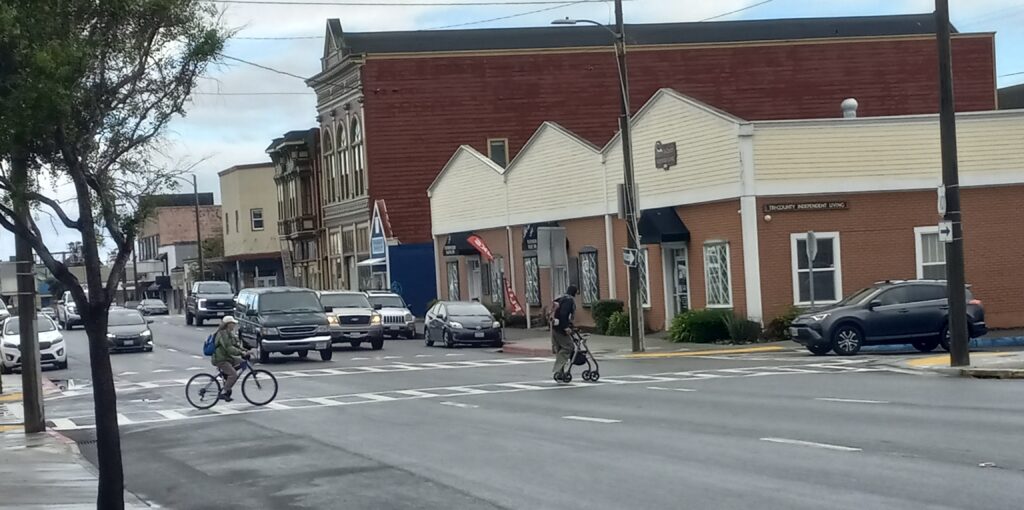
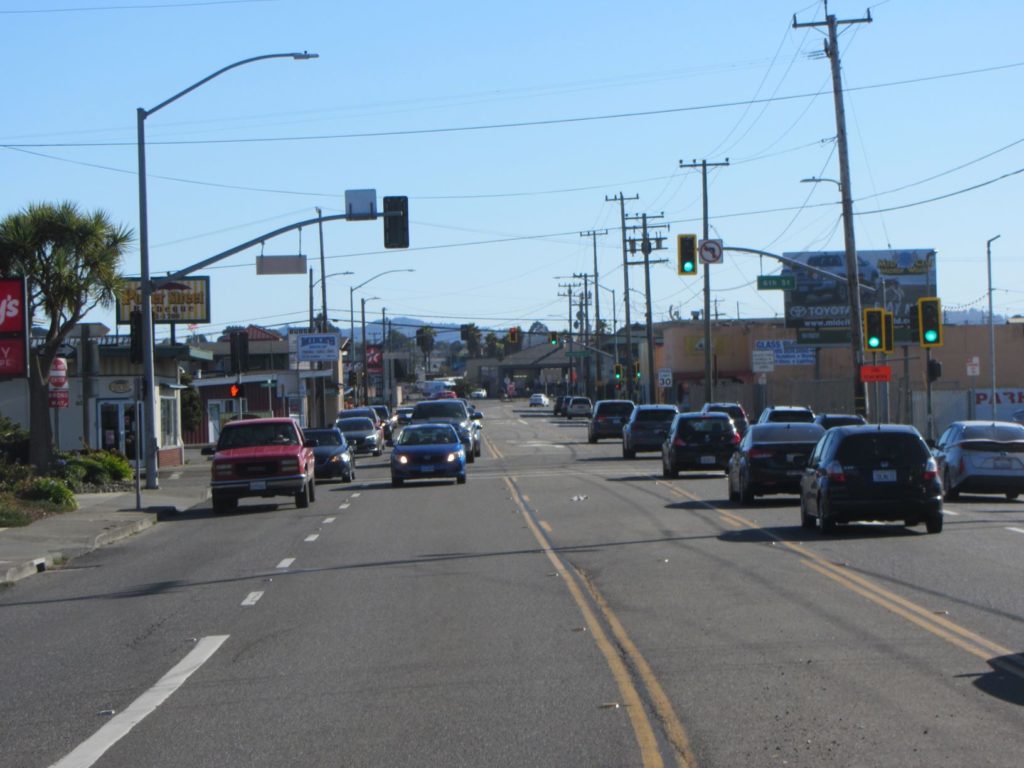
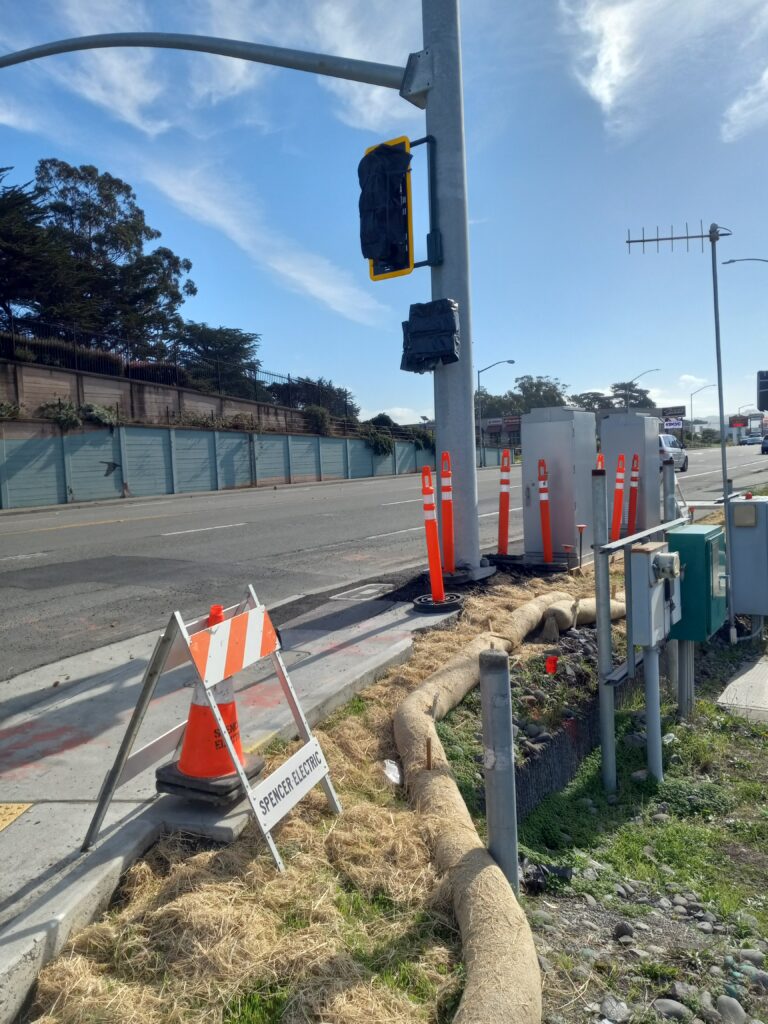

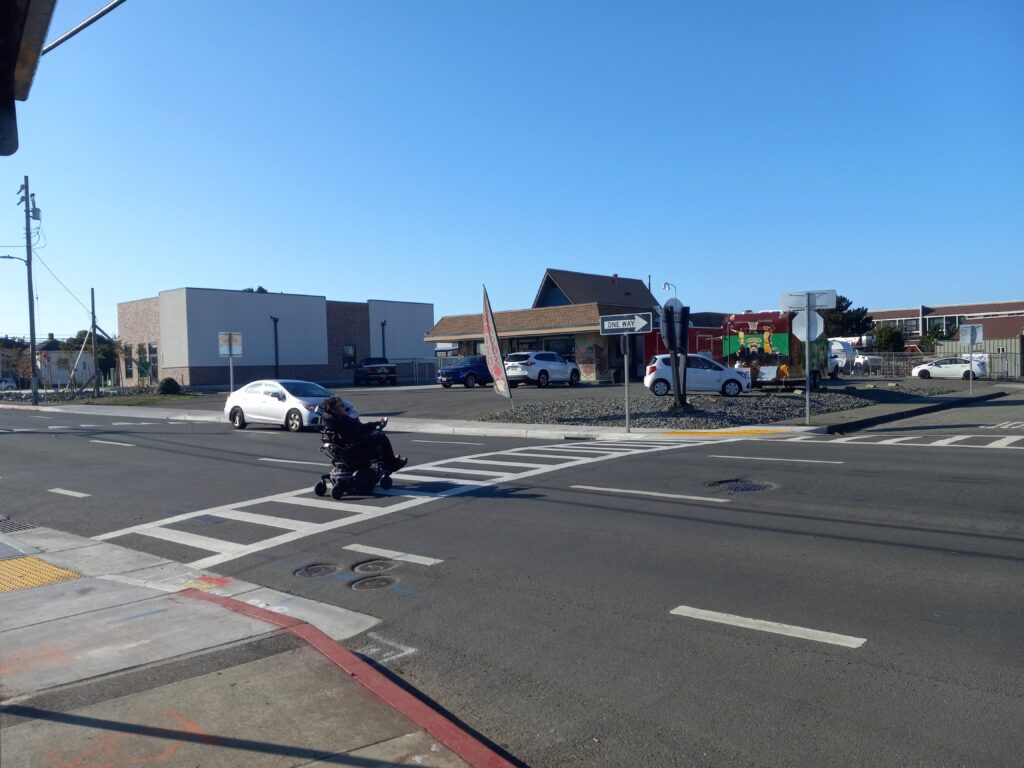
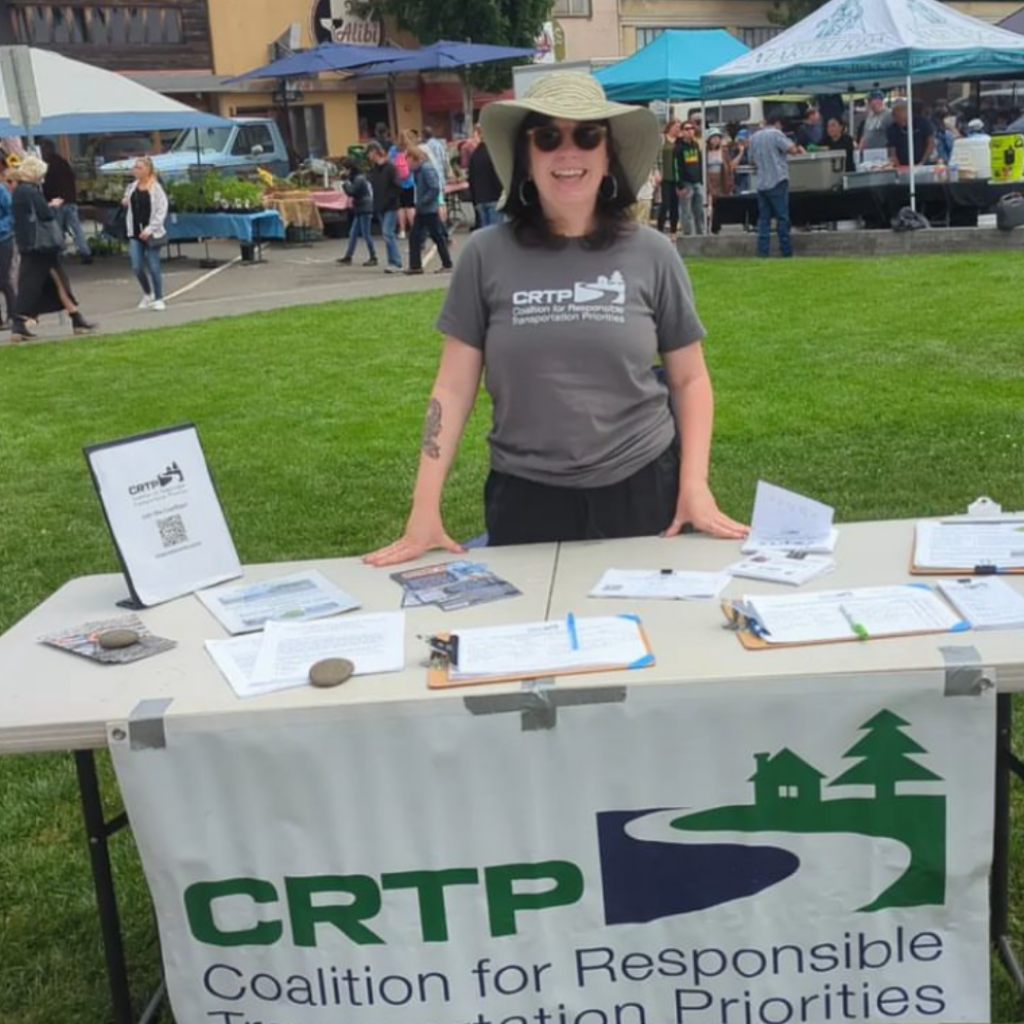
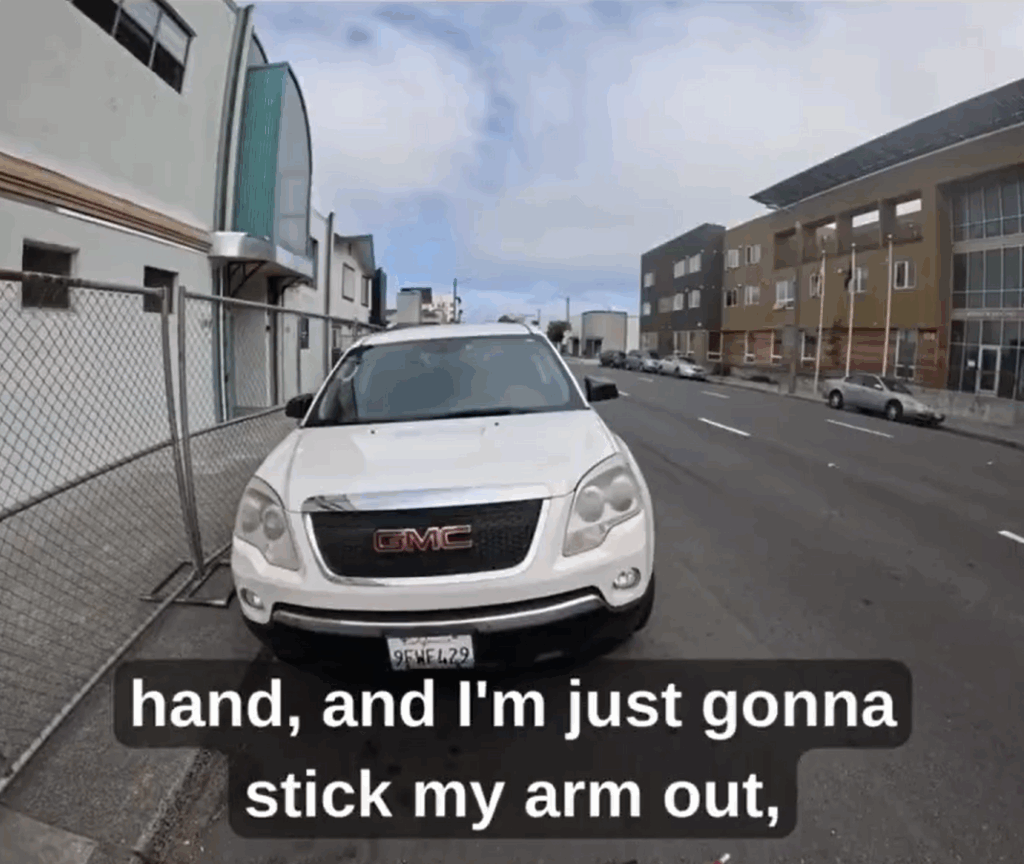
![A video screen shot shows a pickup truck looming large next to a sidewalk, with an intersection and traffic light visible in the background. Text reads "Would the driver even e able to see the child in front of or behind their truck?" and a caption says "[child making sounds]".](https://transportationpriorities.org/wp-content/uploads/2025/10/Screen-shot-from-6-year-old-video-1024x908.png)
